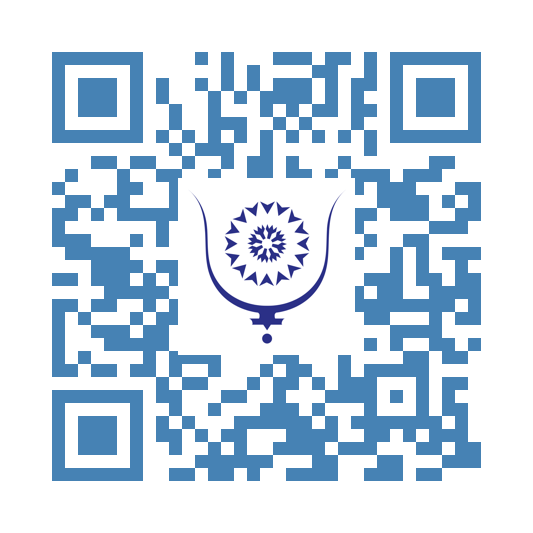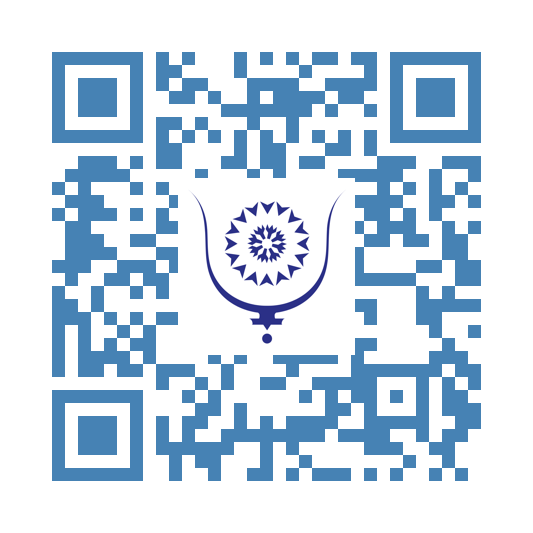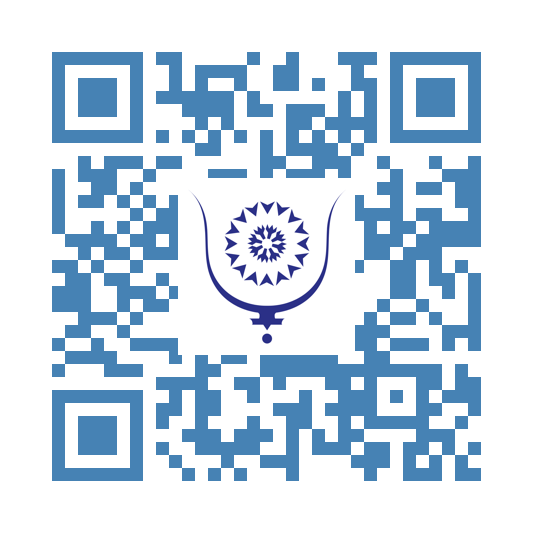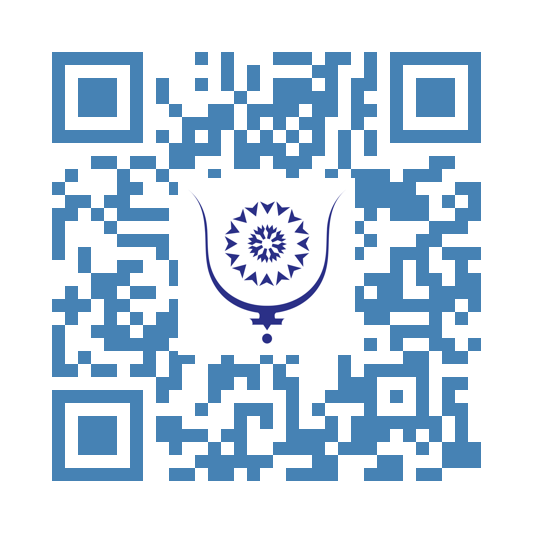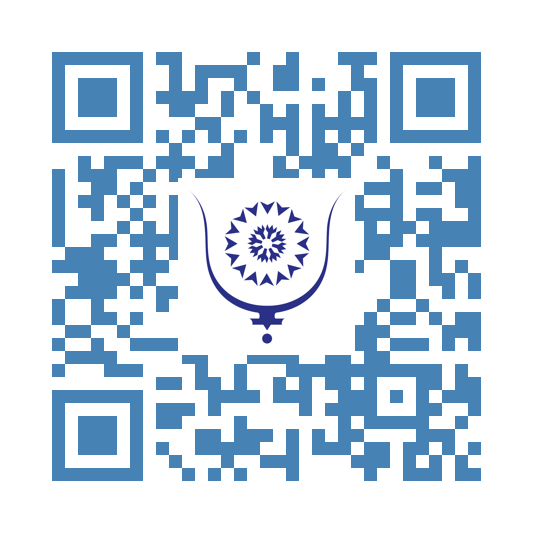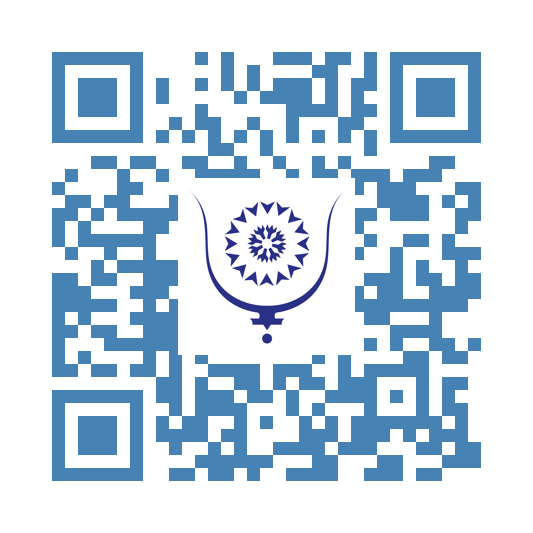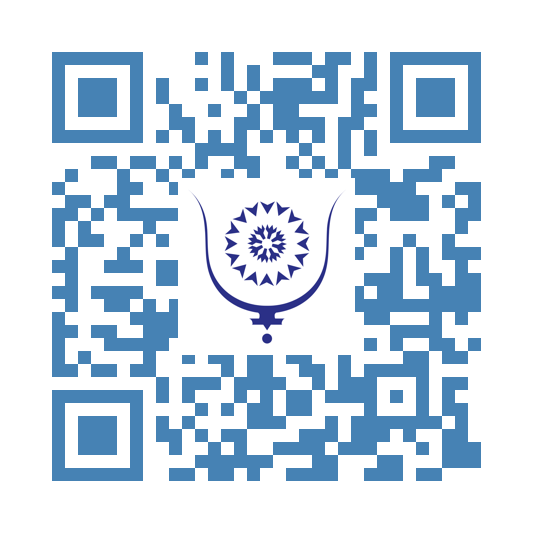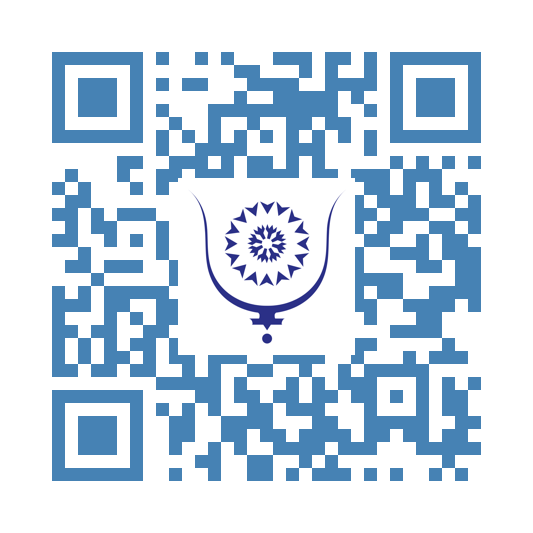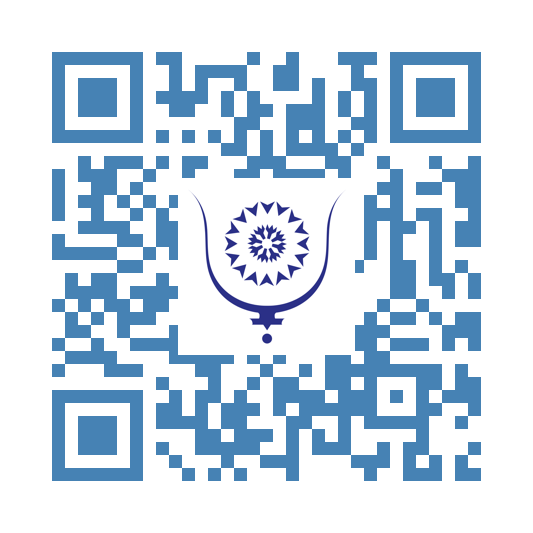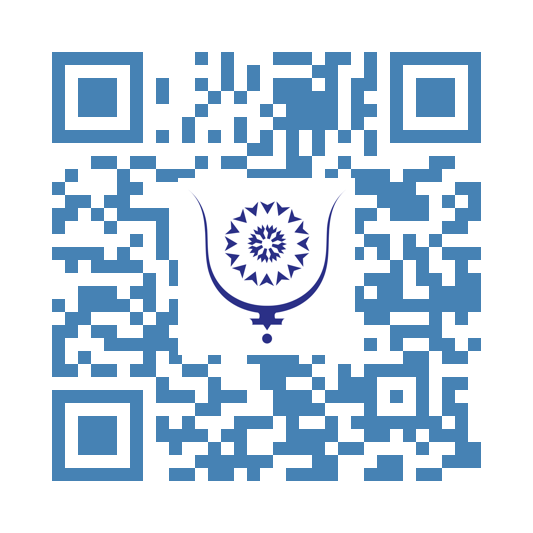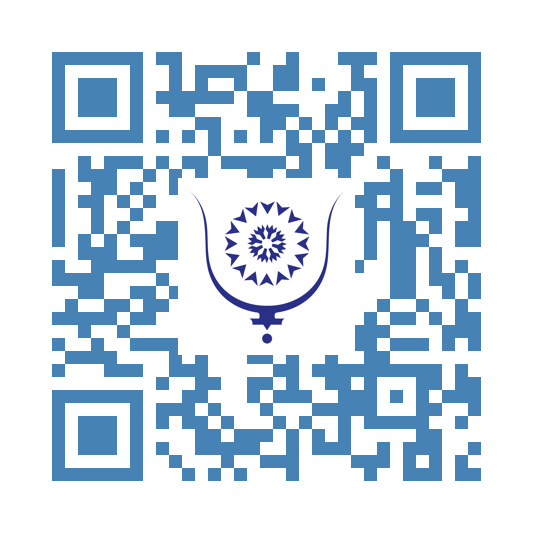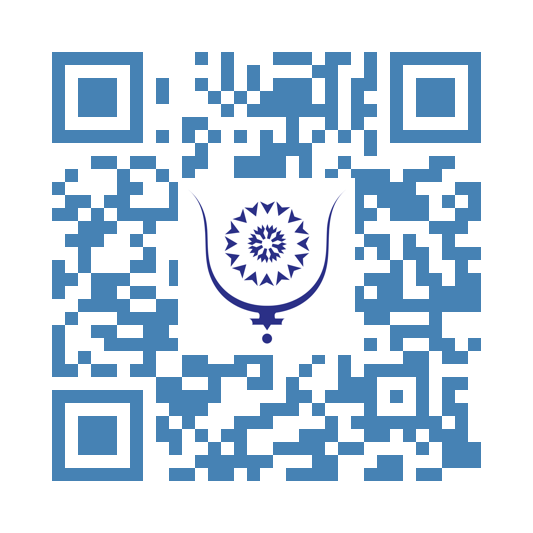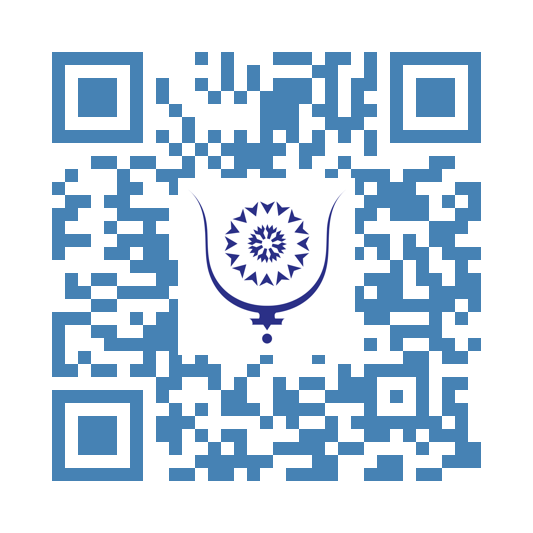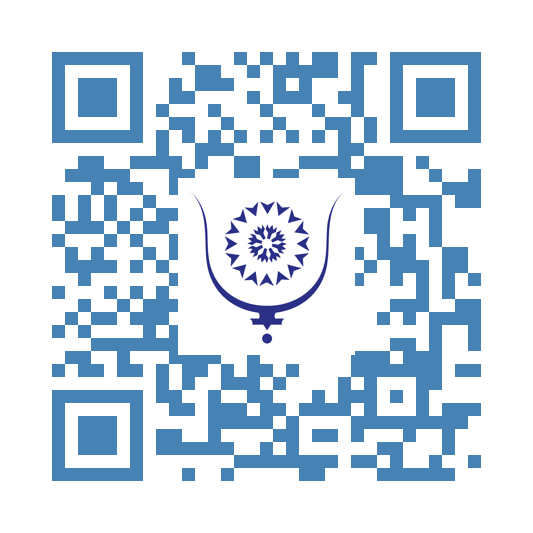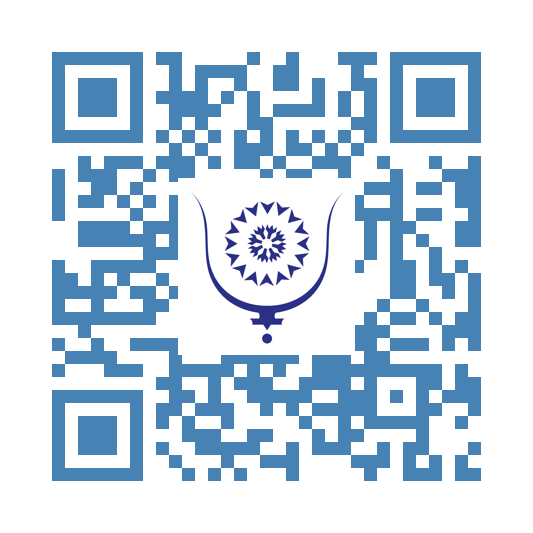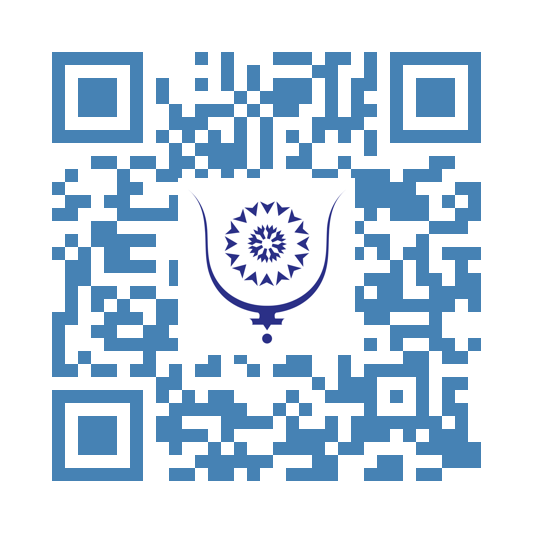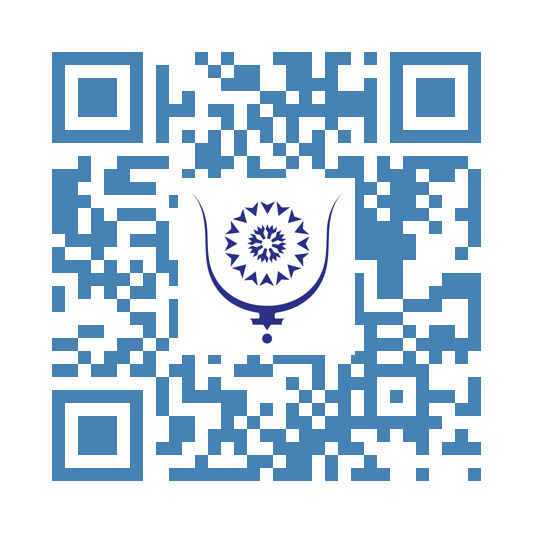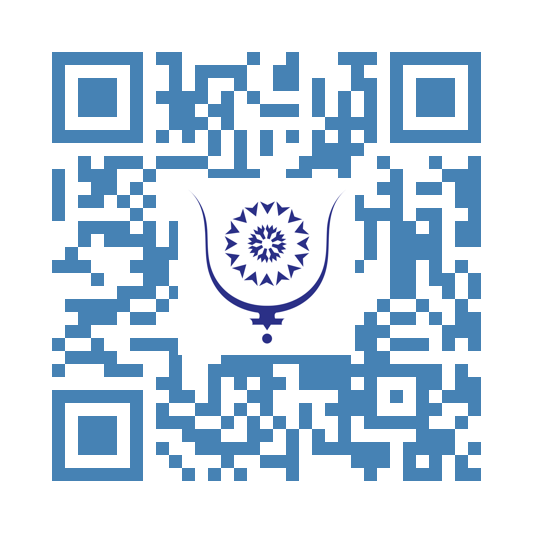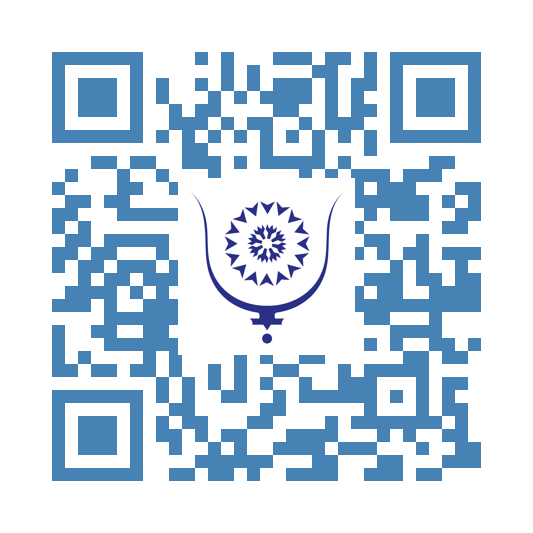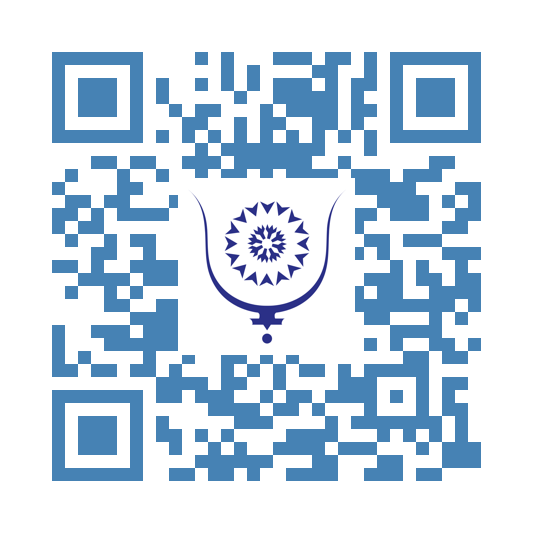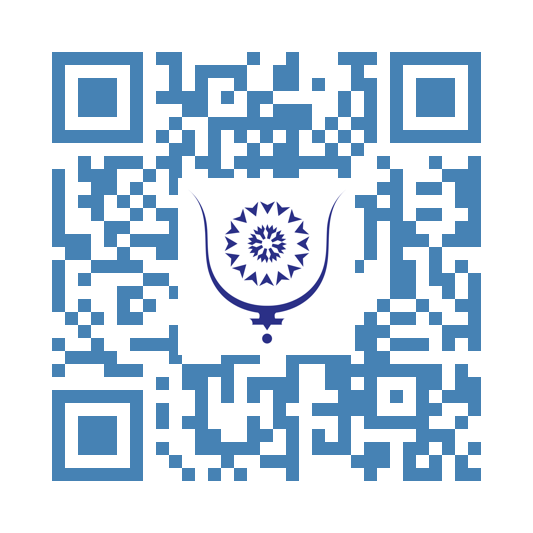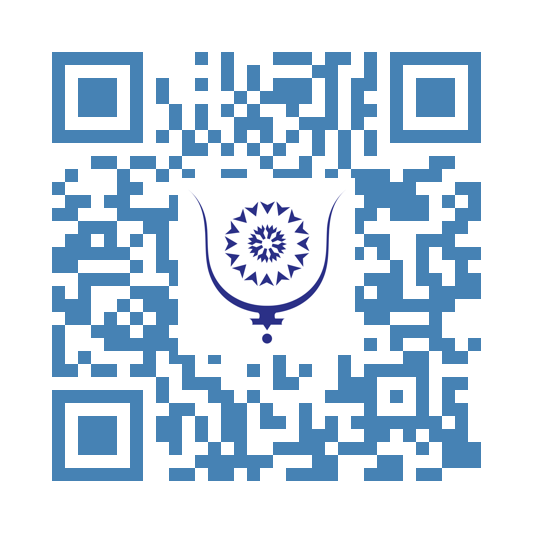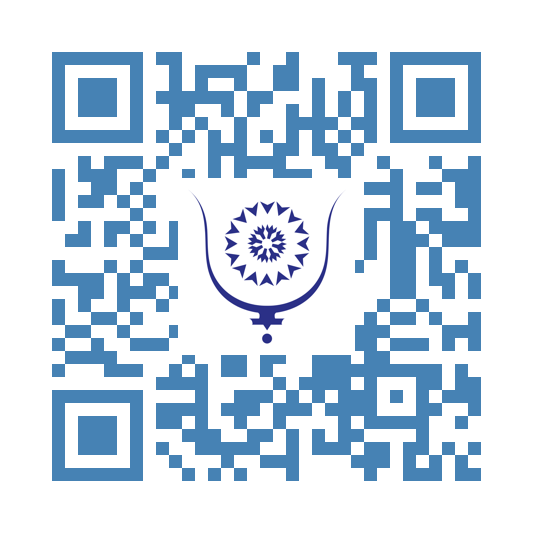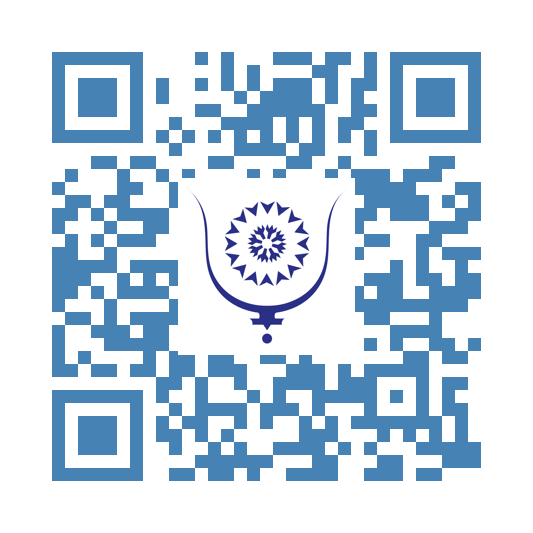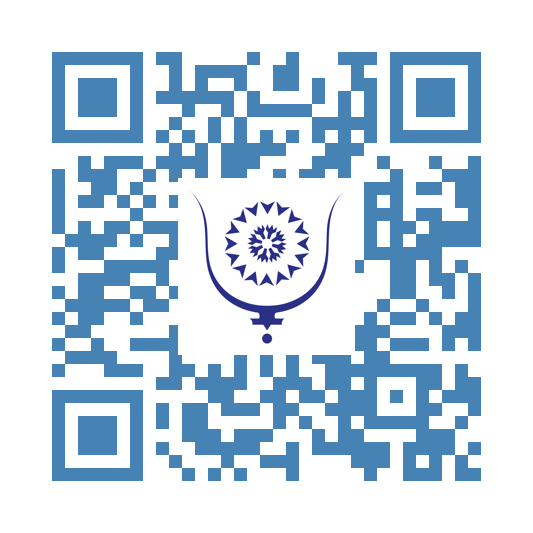And if taxation became the key to our solutions in response to the anger of young people in Morocco?
263
At the end of September 2025, many young Moroccans protested everywhere to demand social justice, educational reforms, better access to healthcare, and the fight against corruption. This unprecedented movement, driven by Generation Z through the GenZ 212 collective, expressed deep distress in the face of precariousness, high unemployment reaching around 35% among 15-24 year olds, and a feeling of social injustice with millions of NEETs.
This was predictable: recent inflation rates, the widespread decline in purchasing power, the pressure on street vendors who were suddenly targeted for eradication, some hastily decided measures linked to the Africa Cup of Nations and the World Cup could not remain without reaction from the population, and it was the youth who carried it. Projects that were supposed to unite us have in fact divided us.
In response to this mobilization, everyone awaited attentively the speech of His Majesty King Mohammed VI on Friday, October 10, at the constitutional opening of the parliamentary session. It was the last speech before these parliamentarians. The next one in Parliament will be delivered in front of other parliamentarians of our choosing as well. We were all hanging on the Sovereign’s words, his tone, his gestures. The paternal serenity of the king reassured us from the first moments of his appearance.
In perfect continuity with the Throne speech, the Sovereign insisted on responsibility and dialogue within institutions. He emphasized the importance of unity, stability, transparency, and social justice, and recalled the need for urgent reforms both in perception and structure, to build a united and prosperous Morocco.
The line is drawn and the course specified: Morocco must become an emerging country and reach a GDP of 300 billion USD as soon as possible, benefiting the entire population and all regions of the country. The anger is perceived intelligently with serenity, and a clear response: based on major achievements, Morocco is embarking on a new era in its development, a more inclusive era that relies on the specificities and strengths of each region. The speech actually calls for a patriotic pact with the commitment of all. A pact in which projects do not collide but complement each other for the benefit of the people.
Thus, the parliamentary session is launched and will tackle the finance bill, and it is the responsibility of the elected representatives to debate it. In the current context and to respond to royal directives, deputies as well as the government must think outside the box and debate constructively, certainly partisan but in the interest of the whole nation.
In this context, taxation can become a more effective and better-adapted tool to the period we are going through and to each region. It must no longer be perceived or felt as a burden or merely a collection tool but as a strategic lever capable of supporting economic and social solutions. Too often reduced to tax collection to finance public spending, it can and must become an engine of growth, investment, and employment, particularly to meet the expectations of young people. It must become a lever for development and fairness.
Among other things, it will be necessary to question the progressive tax reform between 2023 and 2026, which is debated, particularly with the rise of the corporate tax rate (IS) for small and medium-sized enterprises (SMEs). For SMEs whose net taxable profit is less than or equal to 300,000 dirhams, the IS rate increased from 12.5% in 2023 to 17.5% in 2025, and will reach 20% in 2026. This reform aimed to adjust taxation while stimulating economic growth but raises questions about the real impact on SMEs and their capacity to invest and create jobs essential for Moroccan youth. It must be emphasized that SMEs create the most jobs in Morocco, just after the informal sector. The government, which wanted to create jobs, blocked this momentum, including by this poorly timed reform. On the contrary, SMEs which employ the most should benefit from significant tax deductions to help them grow.
Internationally, several countries show that lightened taxation favors competitiveness and attracts investments, such as Ireland with a general IS rate of 12.5%. The Moroccan fiscal framework must be readjusted to stimulate growth and strengthen social justice while ensuring sufficient public revenues.
The challenge in Morocco is to adopt taxation that supports economic recovery while responding to the youth's aspirations for more fairness. This requires joint commitment from the government and parliament to design a transparent, fair tax policy adapted to the reality of SMEs, informal entrepreneurs, and young workers. Taxation that leaves maximum purchasing power to citizens, thus stimulating the true engine of growth: domestic demand. A VAT of 20% does not do this.
Integrating informal activities through taxation adapted to their size would allow valuing these actors as genuine entrepreneurs in the making, thus contributing to the formalization of the economy without crushing their capacities. A street vendor is actually the bearer of an SME project. How many success stories have been forged from precarious activities? Certainly, all this must be organized and regulated, but how does a young person starting a small business disturb us? The space belongs to everyone, including youth launching their own ventures without bothering anyone. Banning them makes bitter avengers ready for anything, while we are unable to offer them alternatives.
In this period of social tensions and hopes for a better Morocco, taxation can become a powerful lever for economic transformation. It must be rethought not as a brake, but as a tool for collective emancipation. Deputies and ministers should read Ibn Khaldoun on this subject.
Making taxation a factor of redistribution through prosperity, serving citizens and especially youth, is a path to explore to build a fairer, stronger Morocco capable of meeting tomorrow’s challenges.
Moreover, promoting national successes in all fields, from entrepreneurship to sports to culture, is essential to nurture the pride and ambition of young Moroccans. The exemplary achievements of our compatriots should be mandatorily taught in schools to inspire curiosity, admiration, and serve as examples through work and innovation.
Share:
And if taxation became the key to our solutions in response to the anger of young people in Morocco?
copy:
https://bluwr.com/p/417429620
His Majesty King Mohammed VI: A Style Rooted in Responsibility, Justice, and Development for All
833
Faithful to the line and logic he has established since the first day of his reign, His Majesty King Mohammed VI has once again confirmed his style. “Style is the man himself,” said Buffon in his famous speech at the French Academy in 1753. By this phrase, Buffon meant that style reflects the personality, thought, and sensitivity of the one who writes or speaks. In other words, the way ideas are expressed is as valuable as the ideas themselves, because it reveals, in a noble sense, what the man truly is: his character, rigor, taste, and intelligence.
This reflection came to me from the very first steps of His Majesty as he descended from his car. His step is firm and his gait serene. He heads towards what represents a strong symbol of modern Morocco: the Parliament. The place where once a year the royal institution, the representatives elected by the people, and the government meet. An annual meeting that serves as a powerful symbol of the functioning and solidity of the country, just as Moroccans wished in 2011.
All the country’s vital forces are there. His Majesty greets those present, all dressed in white, a symbol of purity. They scrutinize his gestures and hang on his words, their breaths low or heavy. The moment is serious. Eyes lower. Ears try to catch every word. Minds are focused.
From the first words spoken, Buffon’s maxim is reversed: “Man is style.” The aphorism opens up another field of interpretation, perhaps more modern: style also shapes the man through education, culture, elegance in language and appearance. This is what was offered to us. His Majesty King Mohammed VI holds a fundamental conviction: institutions. Everything must happen within institutions and come only through institutions. On this October 10th, he reiterated this without ambiguity and with no roundabout phrasing. The words were finely chosen, but the speech was direct.
Five key words will resonate beneath the beautiful dome. They will swirl above the heads of our valiant deputies and ministers throughout a full legislature:
1. Responsibility: His Majesty the King insisted on the seriousness and sense of duty of parliamentarians and the government in the final legislative year, emphasizing the necessity to act with integrity and efficiency in the service of the homeland.
2. Social Justice: A reaffirmed priority to fight inequalities and guarantee fair living conditions for all Moroccans, in line with national economic projects.
3. Reforms: A call to complete and accelerate ongoing structural reforms to consolidate the Kingdom’s democratic and socio-economic achievements. This is a key message of the speech.
4. Unity: The Sovereign launched an appeal for unity and the mobilization of all energies to defend the higher interest of the Nation and strengthen social cohesion.
5. Transparency: The promotion of transparency and citizen communication around public initiatives is highlighted as a key factor for trust and good governance.
The royal speech of October 10, 2025, delivered by His Majesty King Mohammed VI before the Moroccan Parliament, marked a turning point full of hope and commitment for the final legislative year. The Sovereign strongly recalled the importance of “seriousness and sense of duty for the Nation’s representatives,” calling to “complete ongoing reforms, accelerate project implementation, and remain vigilant in defending citizen causes, while prioritizing the general interest.”
One of the key elements of the speech is the undeniable coherence between economic ambitions and social programs. The Sovereign emphasized that there could be no contradiction between these two fundamental dimensions, which must imperatively “converge to improve the living conditions of all Moroccans and ensure balanced territorial development.” This vision underscores the royal commitment to build a Morocco where economic growth rhymes with social justice.
His Majesty also insisted on the need for increased territorial justice, calling for integrated policies targeting the most fragile regions, such as mountainous areas, oases, or expanding rural centers. This approach aims to “facilitate access to services and stimulate local development,” while emphasizing “the importance of sustainable coastal management,” hinting at an ecological dimension and the possible threat of industries. These measures reflect a strong will for equity and territorial solidarity.
In a spirit of unity, the Sovereign made a vigorous appeal for the mobilization of all actors, urging deputies and institutions to “mobilize all their energies in the supreme interest of the Nation” and to promote “transparency and citizen communication around public initiatives.” Facing the challenges, this unity is presented as a necessary force to support reforms and ensure the country’s sustainable progress.
The speech fits a positive logic of institutional continuity, rigor, and collective ambition, making Morocco a “fairer, more modern and solidarity-based country.” Despite a national context marked by social movements, the royal message remains focused on constructive dialogue, fighting inequalities, and trusting institutions.
This speech is thus a clear roadmap for a Morocco progressing with responsibility and justice, driven by an ambitious vision for a shared future. It confirms the style of a monarch adored by a people aware that everything must happen within institutions, in accordance with the constitution desired by the people’s will in 2011.
Faithful to his convictions and his supreme mission as Commander of the Faithful, he recalls: “Whoever does the weight of an atom of good will see it, and whoever does the weight of an atom of evil will see it.” (Surah Az-Zalzala, verses 7 and 8). Az-Zalzala means “the great earthquake.” These verses express that nothing escapes divine justice: every act, no matter how small, will be accounted for on Judgment Day. The Sovereign’s choice is not accidental. Firmness is present. Isn’t he here making an extrapolation beyond the circumstance, in the most solemn context, to remind everyone of the imperative accountability and the firmness awaiting the corrupt and the deviants?
These were the last words of His Majesty before this parliament, before concluding, and they are heavy, very heavy with meaning. The Monarch speaks little but says everything clearly and calmly.
That is his style.
Share:
His Majesty King Mohammed VI: A Style Rooted in Responsibility, Justice, and Development for All
copy:
https://bluwr.com/p/413323016
Walking Barefoot: The Urgency of a Political Awakening in Morocco...
1165
The current Moroccan context is intense, though not unprecedented. Morocco has experienced others before. The protests shaking several cities across the Kingdom, notably led by the collective GenZ 212, are not mere mood swings. They reflect a deep, multifaceted, and long-contained social anger. Inspired perhaps by youth movements seen elsewhere, these protests are rooted in a distinctly Moroccan reality: a young, connected, educated people but disillusioned with a system they believe no longer meets their expectations. This anger is multiple and undeniably legitimate, voiced on behalf of all generations.
The demands focus on recurring but now explosive themes: fighting corruption, the deterioration of certain everyday public services like education and healthcare, the crisis of unemployed graduates, and dangerously widening social inequalities. To this is added a direct critique of the government's economic priorities.
This youth, which no longer identifies with official rhetoric, expresses a new demand: a fairer, more transparent, and closer government. It calls for alignment between political speech and public action. This is not a depoliticized generation as some would like to think, but a generation that rejects pretenses and technocratic answers. It practices politics on the internet, often without realizing it. It speaks the language of everyday life: the price of chicken, healthcare, transport—not inflation rates or macroeconomic indices. It expresses itself through clicks, avatars, emojis, and stickers. It writes Darija in Latin letters and numbers. It seeks information quickly, responds instantly and succinctly. It dislikes long speeches it finds tedious. It lives in a globalized world but proudly claims its Moroccan specificity.
When a citizen complains about the price of tomatoes, it's not an indicator’s graph or an IMF report that will reassure them; they speak in dirhams, not percentages.
So what else can be done if not for decision-makers to walk barefoot from time to time? Walking barefoot means returning to reality. It means feeling the country.
In this tense climate, the metaphor of the late Hassan II inviting architects to “walk barefoot to feel the country” takes on a striking resonance. Originally meant to emphasize understanding Morocco’s soul before building, it has become a political imperative today.
Walking barefoot means stepping down from one’s pedestal, leaving air-conditioned offices, abandoning PowerPoints and slogans to listen to the ground. It means accepting to feel the dust of rural roads, hear the cries from saturated hospitals, share the despair of teachers, or the loneliness of unemployed youth.
They must understand what a “two-speed Morocco” means, denounced by His Majesty King Mohammed VI himself. Part of the country lives in modernity, connected and optimistic, visible in infrastructure projects and international forums. The other, the majority, struggles with precariousness, poverty anxiety, neglect, and injustice. The gap between the two is widening. It is precisely this gap that the current protests expose.
A few years ago, hope was born for a new development model, requested by His Majesty the King himself. What is its status today? Where is this model and its recommendations?
The New Development Model (NDM), much praised at its launch, seems today to have been lost within bureaucratic and communication labyrinths. Its ambitions were high: reduce inequalities, strengthen social cohesion, encourage initiative. But on the ground, Moroccans hardly see the fruits. It has simply been forgotten.
The prevailing impression is one of an increasing gap between promises and reality, between triumphant speeches and citizens’ daily life. This disenchantment is not only economic but also moral: trust is eroding, public discourse is losing meaning.
Youth has forever been the moral compass of nations. It says out loud what others think quietly. The youth mobilization acts as a salutary shock.
The movement is not monolithic: it unites students, unemployed youth, young workers, artists, teachers. But all share a common feeling: having been sidelined by a political and economic system that offers no prospects.
This youth does not attack their country; it wants to save it from a threatening drift. It demands social justice, dignity, and respect. It wants not only to be spoken about but to be spoken with.
It is a call for a rebuilding of social and political bonds, for genuine and sincere listening. The biggest mistake those in power could make is to underestimate this anger, or worse, to despise it. In a world where frustrations are expressed online before hitting the streets, ignoring youth voices sets the stage for a worse crisis.
The urgency is to rediscover the spirit of this millennial country. Today, walking barefoot means returning to essentials:
- Visiting village schools where children lack everything,
- Visiting hospitals where some doctors perform miracles with nothing, but others are absent or resting after working elsewhere,
- Listening to mothers who struggle to feed their families,
- Understanding youth who refuse to live waiting for an administrative miracle.
A country is not governed by PowerPoint slides, reports commissioned from foreign agencies, or promises crafted for social networks. It is governed with an awareness of reality, with the sense of the people, and the will to fix what hurts.
Morocco has often proven its ability to overcome crises by reinventing itself. It still has the human, cultural, and institutional resources to do so. But this requires a change of perspective, a reconciliation with the truth on the ground, and a renewed political humility.
Walking barefoot means reconnecting with deep Morocco, the Morocco that suffers but also hopes. It also means telling citizens hard truths when it errs and when it is itself the cause of its own misery. Walking barefoot means pushing young people to work and innovate. Only on this condition can social peace, national cohesion, and the country’s future be guaranteed.
Share:
Walking Barefoot: The Urgency of a Political Awakening in Morocco...
copy:
https://bluwr.com/p/409403988
An Illusory Return
1254
An Illusory Return
The morning breeze foretells the return of my beloved,
After leaving me for so many years.
If she truly comes, it will be at noon
At least, that’s what she told me.
The morning breeze foretells the return of my beloved,
After leaving me for so many years.
Could it be a premonition?
Will she really come back to me?
Or is it a pious wish,
A dream of a time long gone and faded?
Yet everything seems to foretell her return
On this break of day:
A blue sky, bright and clear,
A sun rising early, strangely so,
Majestic unusually radiant.
The moon takes its leave discreetly and all the better for it.
The morning breeze foretells the return of my beloved,
After leaving me for so many years.
I tremble and waver in my corner like a child,
I cry out in enchantment,
I can no longer keep still
I lose all sense.
A swallow lands upon my balcony,
As if to show me its sympathy.
The morning breeze foretells the return of my beloved,
After leaving me for so many years.
Time stops
it feels like eternity.
The ticking of my watch falters, losing its rhythm,
The hands seem frozen, stretched apart.
I hold my breath,
I can hardly breathe, I’m suffocating,
Sweat pouring from every pore,
My head spinning, my sight blurred.
The morning breeze foretells the return of my beloved,
After leaving me for so many years.
Suddenly, the morning breeze ceases.
I sense that she is not yet ready.
The sun vanishes like a sorcerer,
Hiding behind the clouds.
The moon peeks through now and then,
As if to mock his retreat.
The ticking of my watch resumes its old rhythm,
The clock hands blend together enchantingly.
I catch my breath again,
Regain my composure,
Put my jacket back on,
Recover my reason,
And stop asking questions.
I am convinced she will not return today
She has not kept her word, as always.
I shall wait for another breeze,
On another morning,
That will once again announce her return.
Until then
I’ll go out for a walk.
Dr. Fouad Bouchareb
Rabat, October 26, 2022
All rights reserved.
Share:
An Illusory Return
copy:
https://bluwr.com/p/408581795
The GenZ212 Letter: A Quest for Recognition and Royal Protection...
1287
Far be it from me to amplify the so-called letter from a collective claiming to represent GenZ212, but it is necessary to acknowledge that it deserves a critical reading and analysis to understand both its explicit and implicit content.
Psychologically, the appeal to "express a need for recognition" is evident: the very act of addressing His Majesty the King directly reflects a search for symbolic validation. The authors seek to feel heard and to exist in the public space. The use of frustration language in their grievances conveys an emotional charge, mixing disappointment in economic, social, and identity challenges with aspirations for a better future. The letter reveals a tension between ideal and reality, illustrating a typical psychological divide of this generation: high ambition and demand but also fragility and a sense of powerlessness in the face of structural blocks. One can see a projection onto a paternal figure: His Majesty the King is viewed as the ultimate arbitrator, the supreme recourse, implicitly demanding protection and repair, which intermediate institutions have failed to provide.
Sociologically, this is a generation searching for collective identity: the very name GENZ212 (212 being Morocco’s telephone code) reflects a claim of group identification, no longer just as isolated individuals. This highlights an emerging generational consciousness amid distrust towards established structures. The letter reveals criticism of the state, political parties, unions, and traditional institutions seen as disconnected from youth realities.
This youth evolves in a world different from previous generations, using digital tools as leverage. The preference for direct channels (social networks, petitions, public letters) over traditional mediation reveals a sociological shift in collective action modes, underpinned by social and territorial inequalities. The grievances likely illuminate fractures in education, employment, housing, social mobility, access to culture, and health. These themes reflect a society where youth feel the social elevator blocked, aligning with the general sentiment and sadly overlooking many progress made.
Politically, the letter acts as a symbolic contestation. Addressing His Majesty directly can be seen as implicit criticism of governance and intermediaries, bypassing classic political channels. It raises questions of legitimacy: GENZ212 does not speak for all Moroccan youth but claims to represent them, raising issues of representativeness and possible political co-optation.
It is probably a signal to decision-makers: if institutional dialogue channels remain closed, youth may permanently turn away from institutions and radicalize their discourse.
The positive point is a genuine bet on the future. By turning to His Majesty the King, they place trust in the royal authority to drive structural reform, a sign both of loyalty and failure of democratic mediations.
The letter also invites critical reading of style and tone. The style is direct but sometimes naive. It adopts a frank, often unfiltered tone typical of young generations used to spontaneous expression on social media, blogs, or videos. This gives authenticity but sometimes sacrifices argumentative rigor and credibility. The tone oscillates between respect and defiance.
The text addresses His Majesty with marks of deference while openly criticizing society and the state. This dual register expresses tension and hope: wanting to challenge political leaders while remaining within the bounds of monarchical loyalty.
Use of collective vocabulary (“we, the youth,” “our generation,” “the country's future”) shows a desire to speak on behalf of a community. However, the overemphasis sometimes feels more emotional than programmatic. The language is symbolic and identity-focused, with no clear prioritization of grievances. The claims are listed as frustrations without clear structuring into priorities or concrete proposals. Thus, it is more a plaintive tone than strategic approach.
The style is hybrid, mixing activism and advocacy, revealing hesitation between a militant manifesto and a petition addressed solemnly and respectfully to the supreme authority. This perfectly reflects a generation still finding its discursive register, convinced like its elders that improvements must come through the nation’s chosen and defended framework.
The style and tone reinforce the letter’s heartfelt character: sincere, emotional, and collective. However, they suffer from lack of rhetorical maturity (weak structure, redundancies, slogans rather than solutions). Politically, the remarks aim to symbolically touch and spark public debate.
The GenZ212 letter is thus a hybrid act combining psychological distress, sociological claim, and political gesture. It highlights:
- A feeling of exclusion and marginalization among youth,
- A need for recognition and direct listening,
- A questioning of intermediaries,
- A strong expectation towards the monarchy as guardian of justice and a radiant future.
Ultimately, the GenZ212 letter is a quest for recognition and royal protection.
It is worth noting that the phenomenon is not unique to Morocco and arrived through osmosis as it exists in many parts of the world. These movements are often amplified by digital platforms, turning isolated frustrations into collective mobilizations despite geographical or cultural differences, development gaps, and democracy levels. It is also important to note the proximity of manipulation and nihilistic speech impact.
Share:
The GenZ212 Letter: A Quest for Recognition and Royal Protection...
copy:
https://bluwr.com/p/408455984
He thinks....
1409
He thinks....
He thinks that in his nailed hands
I'm nothing but a toy.
I don’t think I’ll go back to him.
Today, everything has changed
As if nothing had ever happened.
And with the innocence of angels from the skies
in the look in his eyes,
He tells me: I am the keeper of this place,
And that I am his one true love.
He brought me flowers.
How could I not accept them?
And all the naivety of youth
I found again in his gentle smile.
I no longer remember... the fire in your eyes.
How did I find myself in his arms?
I laid my head on his chest, proud,
Like a child returned to their father or mother.
Even my long-abandoned dresses
danced at his feet, all of them.
I forgave him… and asked how he had been.
And I cried for hours under his armpit.
And without thinking, I gave him my hand,
So it could sleep like a bird in his.
And I forgot all my hatred in a fraction of a second.
Who said I held a grudge against him?
How many times did I say I’d never return?
And yet I came back.
My return is wonderful.
To my first love.
Dr. Fouad Bouchareb
All rights reserved
Toulouse, May 29, 2025
Share:
He thinks....
copy:
https://bluwr.com/p/407026828
GenZ 212: the Imperative of a New Political and Social Pact...
1443
In a Morocco pulsating with change, a new breath sweeps through its streets and squares. Imagine, for a moment, the gaze of a young person walking down the avenues of Rabat, their heart filled with an unshakable conviction: that their country must urgently rewrite its destiny, redefine its governance, and above all, give its youth the place they deserve, as builders worthy of their dreams.
This Morocco, once proud of its 2011 Constitution born of a hopeful protest movement, now seems mired in suffocating practices that fuel frustration and stagnation. So many promises inscribed in that text have gone unfulfilled, so many provisions willfully forgotten. The demanding youth, thirsty for justice and inclusion, feel this deeply. For them, it is experienced as a painful fracture.
The world is accelerating with a relentless rhythm, and that fracture is palpable everywhere: nearly 30% of Moroccans are under 30. Yet key decisions are made in the shadows, far from their aspirations, in the hands of aging elites clinging to power, elites who lack humility and bristle at lessons from the younger generation.
The divide also runs through the youth themselves. Many passionate young activists, full of innovation, openly reject recent disturbances. “We do not want to be represented by incompetents, troublemakers, or those who tarnish our cause,” they assert firmly. Yet the feeling of exclusion burns in their words: “We are the future, the Morocco of tomorrow, yet we are pushed to the margins; our voices remain unheard.” Parliament, regional councils, political parties, impenetrable strongholds, all hold the keys to change tightly. How, then, can genuine reform be hoped for?
Faced with this reality, the dream of profound overhaul goes far beyond mere formal adjustments. It calls for a genuine institutional leap, one that fully includes youth and neglected territories. Among the proposals are the reintroduction of generational quotas in assemblies to guarantee tangible representation, lowering eligibility ages to inject fresh air into politics, and creating consultative bodies where young voices are not just background noise but concrete levers for action. Ironically, the Youth Council envisioned by the Constitution, a space meant for unity and expression, remains a dead letter after three successive governments.
Health and education issues have only served as detonators. The discussion quickly expanded into another battle: resistance to regional suffocation. Centralization, that stubborn relic, continues to strangle territorial potential. The promised regionalization of 2011 has never delivered the political and financial autonomy necessary for each region to become an independent engine of development. It is probably time for regions to truly decide their own paths, manage their resources, and drive their own projects, including in health and education. Far from weakening the Moroccan nation, this would strengthen it.
At the heart of these debates lies a fundamental demand: national sovereignty built on inclusion and trust. In a fragile world fraught with economic, climatic, and geopolitical crises, Morocco must reinforce legitimacy through participation and justice. Was it not Mahdi Elmandjra who said, “A country that ignores the potential of its youth has no future”? Today, more than ever, a new social pact must emerge, based on justice, shared responsibility, and genuine participation.
This youth, driven by unprecedented energy, has rediscovered courage. Rooted in history and loyal to the monarchy, it dares to envision a Morocco turned toward tomorrow. Democracy is no longer an abstract luxury, it is the sine qua non for sustainable development and a harmonious society, the key to forever breaking down the wall of a two-speed Morocco.
This awakening Morocco calls for revising political mechanisms, an essential opportunity to build a fairer, more inclusive country where young people become masters of their destiny. They no longer identify with traditional models. They do not simply *live* on the internet, they *build* their professions, their world, their culture, and their lives there. Their universe is called Discord, TikTok, Instagram. It is not only a playground, but an exposed space where joys and frustrations are expressed, and where manipulation lurks.
It is time for everyone to realize: this movement is irreversible. It moves in rhythm with a world in perpetual, exponentially accelerating change. We must accept it, fully embrace this deep transformation, and understand that **GenZ212** simply demands a new political and social pact.
At the same time, this same GenZ212 must not overlook that today’s living conditions are far better than those of their parents, and even more so their grandparents, and that the country’s development indicators are largely positive, with a spectacular decline in poverty rates. Morocco is producing elites at a remarkable pace and now needs investments, reforms, and economic dynamism to absorb them. This transformation is underway, and it is the role of politics to explain it.
Share:
GenZ 212: the Imperative of a New Political and Social Pact...
copy:
https://bluwr.com/p/406980852
The Parental Home
1494
The Parental Home
My parents’ house is permanently closed.
The doorbell remains curiously silent.
There is no longer Mom to welcome me with open arms
and her wonderfully legendary smile.
There is no longer Dad to tell me about his many travels,
to share his famous jokes
and give me advice about my job and career.
There are no more magical smells coming from Mom’s kitchen,
making my mouth water
in anticipation of a good feast
and delicious dishes
of which only she knew the secret.
My parents were so proud to see me become a doctor.
They had no idea that once they became ill,
I would be the one watching over them and their unfortunate fate!
Since their passing, the peaceful atmosphere that reigned in our home is gone.
There is no more joy of living.
And, so to speak,
even the hands of the wall clock have stopped moving.
And the swing has ceased its endless back and forth.
No more tick-tock,
no random music.
There are no more heated debates between my brothers and sisters,
debates that only Dad had the art of settling
with wisdom, favoring no one.
He taught us how to discern things,
to compose poetry, verses, and prose.
He amazed his audience
with his funny stories.
Now, there are no more guests in the house.
A divine silence reigns, like a sacred communion.
Time first suddenly stopped on October 3rd, 1996.
It froze forever on December 5th, 2018.
From now on, I am left only with prayers,
that their souls may rest in peace.
Dr. Bouchareb Fouad
Agadir, August 21st, 2022
All rights reserved
Share:
The Parental Home
copy:
https://bluwr.com/p/406602407
My Generation
2372
I come from a generation that never knew electronic tablets. Our tablets were wooden boards, where we copied verses from the Quran, learned them by heart, and recited them before the fqih. A single mistake meant the sting of a stick, followed by the laughter of classmates.
We never begged our parents for toys. We built them ourselves—rolling bicycle rims with a stick for handlebars, imitating the roar of engines with our mouths, or crafting skateboards from wood and ball bearings. Our games were simple but endless: hide-and-seek, marbles, spinning tops.
We did not need private lessons. Our teachers were masters of their craft, teaching with passion and devotion. We discovered poetry, crossword puzzles, and the joy of words at an early age. Respect for elders was a rule, and care for the younger ones a duty.
Holidays were not for travel but for small jobs that earned us coins to buy books—Camus, Hugo, Balzac, and others that today’s youth rarely open. We lived fully in the real world, untouched by the virtual.
Our joys were simple: an old movie at the cinema, a homemade sandwich of tomatoes and peppers, afternoons at the public pool, or slipping into a football match just before the final whistle. One black-and-white TV channel was enough, and a transistor radio was a treasure.
We kissed our parents’ hands, respected teachers and policemen, shared our scholarship money with siblings, and saved schoolbags and textbooks for years. We listened to our grandmothers’ tales in the dark, our imaginations weaving monsters, heroes, and enchanted princesses.
We knew the Solex, the 2CV, the Dauphine, the R8. We wrote letters and waited for the postman as if he were a hero. Pocket money came only at Eid, and our first driver’s license only after our first paycheck. We grew up running errands, carrying bread to the oven, water from the fountain, groceries on credit in the neighborhood shop.
We learned values the hard way—through discipline, slaps, and the watchful eyes of parents, neighbors, and teachers. Elders were always right. We listened more than we spoke.
That is why my generation is so different from today’s. We are often misunderstood, dismissed as outdated—even by our own children. Yet I cannot help but feel that those who never lived what we did have truly missed something.
Dr. Fouad Bouchareb
All rights reserved
Share:
My Generation
copy:
https://bluwr.com/p/397255366
Media and Intellectual Nihilism: A Poison for Public Debate in Morocco
2421
For some time now, a worrying phenomenon has been spreading in the Moroccan public space: the rise of a nihilistic discourse, sometimes fatalistic and in some aspects anarchistic, propagated by influencers, a certain football audience, journalists, some academics, and even political leaders. This discourse, marked by a radical rejection of any perspective or the multiple tangible signs of progress, reflects a troubling intellectual and civic drift. Instead of stimulating collective reflection and citizen engagement, it fosters distrust, resignation, and disenchantment with the country's future, its institutions, and perhaps even its mode of operation. The prevailing impression is that of a pessimistic trap with no exit.
This nihilism expresses itself through rhetoric saturated with despair and defeatism. Themes of health and education are overused as if they were completely at a standstill. Yet, tens of thousands of Moroccans are successfully treated daily in public hospitals, and all children attend school, many achieving spectacular success that draws admiration internationally.
The discourse reduces Morocco to a state of chronic failure, trapped by political, economic, and social blockages, condemned never to progress. Yet, such a radical and caricatural view obscures the real advances the country has made over recent decades: modern infrastructure, stability in a troubled region, and steady, even impressive, improvements in all social indicators.
Admittedly, these improvements remain insufficient and sometimes unevenly distributed, but outright denial amounts to ignoring the complexity of development, which no model—economic, societal, or political—has managed to resolve perfectly.
Unfortunately, voices spreading these views gain an audience and create a toxic climate for society. Mixed with ideology and unhealthy negativity, they often present religion as a political solution to all problems, while international experience disproves this.
The dissemination of such discourse has consequences. It fuels collective powerlessness and weakens trust in institutions. By instilling the idea that any reform effort is doomed to fail, it encourages social resignation and lays fertile ground for latent, undefined, and immeasurable anger. This context favors demagogic excess, media escalation, and the systematic rejection of any political initiative.
Ultimately, instead of awakening consciences, this nihilism plunges minds into ideological paralysis.
Young people are particularly threatened by this, already facing immense challenges like unemployment, limited access to opportunities, and the quest for social recognition. They are especially exposed to such disorienting messages. Deprived of positive role models, they are tempted toward fatalism, losing confidence in the future and renouncing any form of civic engagement. Yet, a society that despairs of its youth condemns itself to stagnation and decline.
Official media, hampered by lethargy, disconnection from reality, or an unjustified fear of taking risks—both from their leaders and journalists—do little to impose or at least propose an alternative discourse of lucidity and hope.
This is not to deny Morocco’s real challenges: corruption, social inequalities, incompatibility of the education system with modernity, unproductive universities in knowledge and innovation, health system exclusions in some regions, lack of effective governance in many sectors, excessive administrative weight, among others. But these challenges cannot justify an exclusively bleak interpretation of reality.
The responsibility of intellectuals, journalists, and media figures is to propose a critical but constructive vision.
The urgency is to rehabilitate a discourse of balanced lucidity, which recognizes blockages while valuing progress margins. A discourse that denounces failures without annihilating hope. A discourse that highlights shortcomings but also offers solutions. A discourse that holds citizens responsible, that critiques their initiatives and behaviors, that highlights their rights but above all their duties and obligations.
The prevailing nihilism that settles in parts of Moroccan public debate is a slow but dangerous poison. It undermines trust, deepens social fractures, and diverts youth from constructive action and responsibility. Morocco needs critical but responsible voices capable of nurturing a collective project founded on trust, innovation, and the will to build. Without this, society risks locking itself in a vicious circle where cynicism suffocates imagination and inertia becomes inevitable.
Long ago, some were convinced the country was bankrupt; they spoke of an imminent "heart attack." Nothing of the sort happened. On the contrary, the country has advanced, continually progressing, modernizing, and developing. Morocco is increasingly asserting itself in economic emergence and social development, which must not be denied.
Share:
Media and Intellectual Nihilism: A Poison for Public Debate in Morocco
copy:
https://bluwr.com/p/396670336
The man of no conviction
2552
Some people are born to run fast, some to write stories, and some to fill empty space. Empty space fillers come in many shades: normies, NPCs, consultants, and so on. The one we're discussing today is the Man of No Conviction. Let's dress up a portrait:
The Man of No Conviction never fights for anything. He's too cool for that. Changing things is for suckers who watched Naruto and took it too seriously. You can't be a Man of No Conviction if you're stupid. Thankfully, all Men of No Conviction happen to be smart, or at least smarter than those retards who try to do something about anything.
When born in a position of weakness, the Man of No Conviction immigrates. Playing life on hard mode is for suckers. But he's not a sucker, he's a born winner. Not because he actually wins, but because he never allows himself to think that he's lost. This type of behavior is apparent when The Man of No Convictions plays games: If he's losing at fifa, he'll start scoring against himself to deny his defeat. If he's playing a tabletop game, he'll go take a smoke the moment he stops winning and never come back.
So the Man of No Convictions usually switches servers (one needs to be comfortable while having no convictions) but his operating system never changes. His only allegience is to his undying belief that nothing is worth fighting for. If it's not easy, why even bother? A lot of immigrants are men of no conviction; that's why you never see them in protests to better the country that they move to. For the ruling class, these guys are a wet-dream. They can screw them over as much as they please. When things get too bad, they will finally listen to the racists, pack up their stuff and go back to their country. For the sociopathic elite, increasing the number of Men of No Conviction, either through demotivation or importation, provides a high that's only rivaled by dodging taxes and f**king children.
The main issue with the type of guy we're talking about isn't that he's selfish. It's that he is irrationally selfish. Even when the status quo does not benefit him, he cannot fathom the idea of doing something about it, especially if it involves other people. Collective action is always more effective at enacting change than individual efforts. But since he's usually in a position of weakness, collective action implies that there is a greater good. Ideas like altruism and greater good are obviously for faggots, so it's a hard pass. The Man of No Conviction does not go to protests, does not sign petitions, does not believe in charity, and does not even complain about how fucked things are. Actually, he secretly wishes he was one of the people responsible for how fucked things are. His ideal jobs range from drug dealer and cigarette marketer to Blackrock executive or corrupt dictator. After all, a flexible moral disposition is one his greatest strengths.
A lot of people in my generation are increasingly adhering to this persona. That's why e-commerce Buggati influencers are so popular. Gary Stevenson, ex-brokey turned ex-trader turned influencer, put it beautifully : " when you win at life, you win against the people competing with you. The people you grew up with and surrounded by. You leave these people behind and move on to compete with other people". In his case, he loved his people and decided to go back to help them out by starting a movement to tax the rich. To the Man of No Conviction, moving up in society is good especially because it allows him to look down on those who were his peers before. It is the ultimate validation for his way of life. A wonderful life of walking down the beaten path traced by various intelligence agencies and unbeatable power structures.
If your parents are like that, god forbid they try to give you a better life than the one they had. If your coworkers are like that, god forbid you get together to defend your common class interests. If you friends are like that, god forbid you ever ask them to do anything for you that requires more than the slightest bit of effort. Of course, if you call out a Man of No Conviction for who he is, he'll retreat to mockery (you are lame for trying to change things), blame shifting ( they never agreed to the basic expectations your relationship implies), and gaslighting (you're the one who started this).
Next time we'll discuss the exact opposite archetype : the woman of too many affiliations.
Share:
The man of no conviction
copy:
https://bluwr.com/p/394944231
Narcissism at its Extreme
2589
How handsome he is,
the man with the hat!
A true Sagittarius,
one of a kind,
dignified and bold,
fantastic,
funny,
extravagant,
enigmatic,
mysterious,
curious,
a dreamer,
gentle
and rebellious at the same time.
For his family, he is an idol,
for his colleagues, he is kind and witty,
for his friends, a center of gravity.
His days overflow with activity.
He defies every law.
A piercing gaze,
commanding respect
and regard.
Sociable,
and rather helpful.
A sly smile
never leaves indifferent
those who cross his path.
Some admire him,
those who fight him end up retreating.
His beauty can be seen from afar,
though faded in certain corners.
Beneath his bright hat he conceals
secrets,
mysteries,
dreams,
and desires.
His charisma is real,
a gift from heaven.
His elegance envies no rival.
A hidden strength,
a star that sings in the heart of a lost night,
a love song from the past
that defies infinity—
and it is better this way.
Other stars,
dazzled and amazed,
in a serene sky,
repeat their refrains
while awaiting the break of dawn,
the rising of the sun,
and the warmth of its rays, one after the other.
His kindness is legendary,
his friendship exemplary,
his reputation crosses borders
and rivals his peers.
Dr. Fouad Bouchareb
All rights reserved
Agadir, July 17, 2025
Share:
Narcissism at its Extreme
copy:
https://bluwr.com/p/394604416
The Barefoot Doctors
2702
A French text left a lasting impression on me during my first year of secondary school at Lycée Moulay Ismail in Meknes. It was even decisive in my early choice to pursue medical studies.
My French teacher, Mr. Rossetti, had assigned us to summarize an article entitled The Barefoot Doctors.
I was deeply fascinated by the story of these Chinese practitioners, so named, who tirelessly traveled across their vast country to provide care to local populations. They braved harsh living conditions but fulfilled their mission with remarkable dedication and selflessness. They never complained, nor did they ever ask for money in return for their services. Their practice was one of proximity, modest in its means, but essential, effective, and invaluable for vulnerable communities—poor, yet dignified and grateful. Their working days were long, often exhausting, and the climate conditions harsh and extreme.
After completing my medical studies, and following a brief experience in the private sector, I chose to embrace a career in public health. I too wanted to become one of those barefoot doctors. My decision had been made long before, and my dream finally came true on November 8, 1983, just after the commemoration of the glorious Green March. For me, it was a sign of destiny.
During more than thirty-three years of service in public health, I had the privilege of working alongside many wonderful doctors who, like me, had chosen this path. Several were from my cohort at the Faculty of Medicine in Rabat—an exceptional class—others were older, and still others were younger colleagues who later joined our ranks.
These physicians were the true barefoot doctors. They chose to serve Moroccans in remote areas where living, housing, and working conditions were extremely difficult. Salaries were meager. Yet greed and corruption had no place. The rare deviations were quickly identified and corrected by peers. Absenteeism was forbidden, and leave was short. Very soon, a relationship of trust and symbiosis developed between the doctors and the local populations. Many lived for years in these remote regions without ever considering leaving.
Some of them took part in health campaigns and medical coverage operations without ever requesting compensation. Many died in total anonymity, fighting epidemics—the Covid-19 pandemic being a striking example. Others live today in modest, sometimes precarious retirement, but remain dignified and proud of the duty they fulfilled.
It is precisely this kind of practitioners that our country lacks today. These are the doctors Morocco needs: the barefoot doctors.
Dr. Fouad Bouchareb
Former Senior Official, Ministry of Health
Rabat, September 25, 2025
All rights reserved
Share:
The Barefoot Doctors
copy:
https://bluwr.com/p/393271536
“Peace and Return with Dignity”: A Sahrawi Collective Calls for Voluntary Return to Morocco
2771
Founded in June 2025 in Nouadhibou by Sahrawis living in Mauritania, Europe, and the Tindouf camps in Algeria, a collective named “Peace and Return with Dignity” seeks to promote the voluntary return of “refugees” to Morocco. Under the leadership of Badi Abdelaziz—who presents himself as a former separatist military cadre turned opponent of the Polisario Front, the group issued an appeal in September 2025 to the Moroccan authorities, requesting facilitation of repatriation for Sahrawis under safe and dignified conditions. While Moroccan press outlets relayed this initiative, it has remained largely absent from the media in the neighboring country and its proxy, for obvious reasons.
The collective denounces the “difficult” and “inhumane” conditions endured by populations in the Tindouf camps, blaming the Polisario’s oppressive administration and calling for guarantees of safety and dignity for those wishing to return. This initiative highlights both humanitarian concerns already raised by several NGOs and the voices of Sahrawis themselves seeking to break free from dominant structures (the Polisario Front and the Algerian military authorities). The stakes are therefore both humanitarian and political.
According to Badi Abdelaziz, the initiative aligns with the recommendations previously emphasized by Morocco’s UN ambassador, Omar Hilale, who underlined that "refugee" return requires an official census, a demand made for years by the UN High Commissioner for Refugees (UNHCR) but never carried out, blocked by Algeria’s military junta. A census is considered a prerequisite to identify those eligible for return. As widely known, not all those held in Tindouf originate from the region. The collective therefore aims to ensure a transparent and rights-based return, while challenging the Polisario’s political control over the camps.
The population, weary of harsh living conditions, is increasingly aware of the false propaganda and of its exploitation by the Polisario separatists for agendas far removed from official rhetoric. UN agencies, in their Sahrawi Refugees Response Plan 2024-2025, estimate funding needs at nearly USD 104 million to assist those held in Tindouf, underlining their total dependence on international aid. These figures reflect the gravity of the situation, which fuels both diplomatic and humanitarian debates on the so-called Western Sahara issue, especially as many reports, backed by evidence, stress the systematic diversion of aid.
The group’s call must also be seen in the light of the geopolitical evolution of this dossier with its multiple regional and international ramifications.
The international community, and major powers first and foremost, are weary of the situation Algeria created and continues to maintain at exorbitant cost, at the expense of its own development, the well-being of its people, and regional security.
In this context, the roles of Mauritania and Algeria are central. Mauritania, though relatively neutral, nevertheless hosted and tolerated the launch of this collective in Nouadhibou, perhaps signaling a shift or a willingness to open more pragmatic dialogue. Algeria, on the other hand, remains the Polisario’s staunchest political and military backer. The reality today is that Algeria’s military junta uses this conflict to boost regional influence, counter Morocco’s growing weight, and above all export its failures and chronic shortcomings, despite the country’s immense wealth.
The Morocco-Algeria rivalry, fueled solely by Algiers, is further exacerbated by this issue, blocking regional progress such as Maghreb reunification and broader economic integration. The conflict hampers cooperation on trade, security, and migration, at a time when the region faces shared challenges like terrorism, irregular migration, and climate change.
International actors also play a pivotal role and increasingly seem eager to fast-track a resolution. The United States, France, Spain, the United Kingdom, and other EU, African, Asian, and Latin American countries have clearly aligned with Morocco’s position, recognizing the Moroccan sovereignty of the territories in question on the basis of factual and objective arguments. The recent visit of Minister Bourita to Beijing also appears to support this trend.
Officially, however, the status quo remains, at least until the next UN Security Council meeting on the matter. Morocco has consolidated its network of support thanks to its autonomy plan, arguing that it represents the realistic solution that respects territorial integrity and national unity. This proposal appeals to partners faced with the chimera of independence promoted by Algeria’s proxy.
Security considerations weigh heavily as well. The Sahara is a strategic corridor for drug and arms trafficking, raising alarms among Western powers. Stability in the area is therefore crucial not only for local populations but also for regional and international security.
The “Peace and Return with Dignity” collective thus offers a fresh internal perspective: a significant portion of Sahrawis rejects prolonging the conflict at the cost of continued suffering. Its endorsement of autonomy within the Kingdom and its clear call for voluntary return are signals that cannot be ignored in the regional diplomatic calculus.
Still, it remains difficult to assess the collective’s exact representativeness compared with other factions, whose influence and independence are often hard to gauge. Moreover, the regional context, marked by tensions such as those between Mali and Algiers, contradictory interests, and major security challenges, continues to complicate rapid progress.
In the meantime, those held in Tindouf camps continue to live in precarious conditions, underscoring the urgency of reinforced humanitarian action. Only Morocco’s proposed political framework ensures rights and respects the dignity of the affected populations. Balancing political settlement, strategic ambitions, and humanitarian urgency remains the key to unlocking this protracted issue, one whose resolution will largely shape the future stability of North Africa. It is in this context that upcoming Security Council debates on this artificial conflict, which has dragged on for far too long, should take place.
Share:
“Peace and Return with Dignity”: A Sahrawi Collective Calls for Voluntary Return to Morocco
copy:
https://bluwr.com/p/391399183
World Athletics Championships Tokyo 2025: American Domination and Morocco's Decline
2765
The 2025 World Athletics Championships in Tokyo gathered a record participation, with medals won by athletes from 53 different countries, marking a notable increase compared to previous editions. This reflects the steady growth of athletics worldwide, which remains the most universal sport.
Tokyo confirmed the historic dominance of the United States, which won 26 medals (16 gold, 5 silver, 5 bronze), followed by Kenya (7 gold, 2 silver, 2 bronze) and Canada. Representing Africa, Botswana ranked 5th (2 gold and 1 bronze), a position Morocco held in Seville 1999 (2 gold, 2 silver, 1 bronze).
The United States maintained its supremacy, notably thanks to a highly effective team of sprinters and relay runners, including athletes like Jefferson-Wooden and Noah Lyles, the latter securing his 10th world championship medal, symbolizing longevity and consistency at the highest level.
Kenya, bolstered by its long- and middle-distance runners, remained among the top nations, confirming Africa’s tradition of excellence in these disciplines. Canada, the Netherlands, Botswana, New Zealand, and Spain completed the list of the most medaled nations, illustrating a diverse rise in global athletics.
Africa again demonstrated a significant presence, particularly in the middle-distance and 3000 m steeplechase events, key disciplines for the region. Among the titleholders were Kenyan Beatrice Chebet, winner of the 5000 m and 10,000 m, and Faith Kipyegon, victorious in the 1500 m and silver medalist in the 5000 m. Botswana’s victories in the men's 400 m and 4x400 m relay illustrate Africa's growing strength in events it is gradually mastering. Tanzania’s win in the men's marathon was also a highlight. El Bakkali, highly anticipated in the 3000 m steeplechase, stood out despite not defending his title. Maintaining such longevity in a demanding event is no easy feat.
The competition also highlighted the strengthening of African mixed relays, with South Africa's team setting the only African continental record, in the mixed 4x400 m relay. This underscores the continent's tactical and collective development.
African performances also emphasize the need for targeted investments in disciplines where the continent traditionally excels, alongside growing interest in mixed and team events, linking to a more strategic and inclusive approach to athletics. Although African participation remains strong both quantitatively and qualitatively, results call for strategic reflection ahead of future competitions to enhance competitiveness and sustainable success, especially considering the decline of male athletes in the 5000 m and 10,000 m events.
In the country ranking, two major African disappointments stand out: Ethiopia’s drop from 6th place in 2023 to 22nd, and notably Morocco’s fall from 13th to 35th place.
This edition confirmed Morocco’s decline, which for over 20 years has struggled to regain success except for the valiant Soufiane. The results are not even encouraging: among 18 athletes entered, only one female and one male finished the marathon, while others had to withdraw. Only one female athlete, Raziki in the 800 m with a personal best, advanced to the second round, and just two men reached the final: El Bakkali, of course, and the young Salaheddine Ben Yazide, who placed 5th in the 3000 m steeplechase. Once a significant player, Morocco now faces the challenge of renewal to remain competitive amid increasingly dense global competition.
The mediocrity of the results raises serious questions and should prompt authorities to draw lessons from this decline, which Moroccan public opinion struggles to accept, as evidenced by numerous social media posts and discussions. The country lacks neither expertise, resources, infrastructure, competent staff, nor political will.
Share:
World Athletics Championships Tokyo 2025: American Domination and Morocco's Decline
copy:
https://bluwr.com/p/388217664
Political Participation in Morocco, Crisis of Representativity, and the Emergence of New Forms of Protest
2713
As Morocco prepares for a major electoral milestone in 2026, announced by His Majesty the King who wishes it to be exemplary, the political landscape appears deeply shaken and even disconnected from reality. A recent report from the Moroccan Center for Conjuncture reveals that 91.5% of Moroccans do not identify with political parties and 94.8% do not trust them. They rate their performance poorly, a striking indicator of an unprecedented crisis of trust and representativity. Regarding Parliament, 89.5% of citizens evaluate it negatively. This dissatisfaction rate is close to that recorded for the government: 87.3% strongly criticize its performance, while only 1.1% express a positive opinion about it.
Even more worrying, financial compensation tops the list as a motivation to vote for one candidate or another, while affiliation to a political current represents only 13.7%. This is a troubling finding.
The turnout in previous elections already constituted a revealing index of a true political disengagement. The current situation is in fact nothing but a prolonged expression of distrust toward the political system. This distrust, which is not new, has probably intensified considerably.
Rejection now goes beyond simple disinterest in voting. It is a "global rejection" of the partisan system, perceived as incapable of responding to the real expectations and needs of citizens. Having experienced various political trends without meaningful results, they increasingly trust only His Majesty the King and express this loudly. The rupture is fueled by structural problems: youth unemployment rate reaching 36.7% in 2024 according to some sources, growing social precariousness, and a feeling of abandonment in rural and remote areas.
What is new today are the increasingly numerous voices rising outside the ballot box and the political calendar as provided by the Constitution. Disinterest in parties does not mean total disengagement. On the contrary, new forms of political participation are emerging locally. In Aït Bouguemaz, in the High Atlas, as in many villages and hamlets, inhabitants no longer hesitate to demand essential infrastructure and take over roads to make themselves heard. Everywhere, often driven by youth, people mobilize to denounce exclusion and lack of economic prospects. Some demand access to drinking water, others express a diffuse unease, a form of dissatisfaction not always clearly articulated.
The urban environment is no exception. In Agadir, gatherings have raised alarms about the crisis in the health system and failures of a hospital that was once a flagship of public health. It has even been reported that demonstrations are banned in front of some other hospitals in various regions.
When these actions, escaping traditional electoral frameworks, express a spontaneous will for citizen engagement, they are very welcome and legitimate. But when demands are tinged with ideological language, nihilistic expressions, or manipulated by populism fueled by some politicians or by improvised self-appointed pundits armed with a phone or microphone, the situation becomes more worrying. It should also be noted that disconnected appointments, the detachment of many officials from reality, and the inefficiency of often costly programming do not help.
In response, the population expresses itself in its own ways: in public, on social media, during football matches or cultural events. Some even question the strategic choices of the State, denounce World Cup projects or the TGV, and draw critical parallels between their region and the more favored areas of the country.
These claims are generally perceived as legitimate and receive strong popular echo. The general feeling is that the balance Morocco has always sought between freedom and equality no longer satisfies. The demands reflect a malaise and a disavowal of public policies, both among entrepreneurs who create wealth and those who claim more equality, often implicitly meaning taking more from those who have to redistribute. Those who contribute, rightly so, already feel they give a lot. As for civil servants, whose salary is guaranteed every month-end, they are also dissatisfied as their purchasing power deteriorates year after year.
Official political discourse and reassuring information no longer suffice. Citizens demand concrete results, at home, in their regions, in their villages. The key word is "tahmiche": this feeling of exclusion often rightly experienced, although in some cases citizens are also responsible, whether through their vote for incompetent people or their lack of initiative. Welfare policies play a significant role here as well.
Most concerning is that youth seem to oscillate between disillusionment due to frustration and innovation in their modes of expression. They project an image of themselves claiming rights but not always considering their duties. The rejection of the traditional system does not mean a total withdrawal from the political sphere. This new generation, connected and aware of national and global issues, favors more direct and creative forms of action. However, this marginalization of traditional institutions is a warning sign: if no concrete reform is undertaken, the gap between the governed and the governors is likely to widen further.
The 2026 elections thus become a crucial milestone. They constitute a major test for Morocco. Faced with rising abstention and extra-institutional protest, they could either confirm the crisis of trust or initiate a renewed participation. For this, parties and institutions must go beyond speeches and establish genuine dialogue spaces. They must also respond to local demands with concrete measures, demonstrating that politics can change daily life.
Without a strong and credible response, these elections risk being nothing more than a meaningless formality, further deepening popular disenchantment.
Morocco finds itself at a delicate turning point where society politically reinvents itself outside traditional parties. The challenge of the coming elections is therefore much more than a simple vote: it is the reconquest of trust and authentic representation, to finally engage the country on the path of confidence, lasting stability, and cohesion.
Share:
Political Participation in Morocco, Crisis of Representativity, and the Emergence of New Forms of Protest
copy:
https://bluwr.com/p/388205605
Moroccans’ Relationship to the Law: A Great Misunderstanding…
3278
The relationship between Moroccans and the law reveals a profound ambiguity, fueled by a build-up of paradoxes and historical, cultural, and political contradictions. It cannot be explained solely by a lack of communication or pedagogy, but by a deeply rooted perception in which the law is not seen as a collective framework to be respected out of conviction, but as an external constraint, often imposed and rarely internalized.
First, one must highlight the ignorance—sometimes deliberate—of the very existence of many laws. In numerous cases, the Moroccan citizen only discovers a text when it is opposed to them in a conflictual situation. This reactive, rather than proactive, relationship with the law generates paradoxical behaviors: resigned acceptance when it imposes itself forcefully, but also recourse to excuses, justifications, or feigned ignorance whenever its application becomes restrictive.
To this lack of knowledge is added an ambivalent attitude: the law is respected not out of moral adherence, but out of fear of sanction. Road traffic provides the clearest illustration: the presence of a police officer results in scrupulous respect for the code, while their absence unleashes anarchic behavior. In other words, authority substitutes for civic conviction.
But the problem does not lie solely in individual behavior. The legal framework itself suffers from a lack of updating and adaptation. Many Moroccan laws are inherited from a bygone era, conceived in another social context, and struggle to address today’s realities. The legislative process, too slow and often opaque, widens the gap between texts and citizens’ aspirations. Public debates on bills are rare, if not nonexistent, and civil society finds only a marginal place in them. This democratic shortfall is compounded by the chronic passivity of political parties and the decline of union membership, depriving the public arena of genuine contradictory debate. The situation is also aggravated by the language issue: when debates do take place, laws are written, discussed, published, and applied in a language that is not the everyday language of Moroccans.
Added to this is the perception of institutional inefficiency: a parliament marked by a lack of competence and seriousness, a political elite sometimes disconnected, and local authorities unable to translate citizens’ needs into effective texts and decisions. Thus, some laws appear disconnected—or even foreign—to social realities. They sometimes criminalize harmless behaviors that harm neither the individual nor the community, but instead reflect the imposition of a conservative morality at the expense of individual freedom. Religious morality is never far away. Hence the crucial question: where does law end and morality begin? And above all, what place should ethics have in the governance of a country in transition, a country aspiring to development and modernity and making colossal efforts in that direction?
Faced with these gaps, citizens develop strategies of adaptation, sometimes of survival. The law becomes flexible, respected or not depending on the situation, depending on the eye of authority. Respect is no longer a conviction but a calculation. But can one demand respect for a law perceived as illegitimate, useless, or unjust? Can texts be maintained in force when the majority of citizens systematically bypass them, and even the agents charged with enforcing them transgress them individually?
This ambiguous relationship is built from childhood, in the transmission of social norms. A child learns at school that alcohol is forbidden out of respect for religion and the law, but at home or nearby sees it consumed casually. They are taught respect for the traffic code, but their father runs red lights whenever the police are not around. This contradictory education creates lasting confusion between proclaimed values and lived practices, reinforcing the idea that the law is not a universal rule but a contextual constraint. Thus emerges a sense of fear rather than respect for laws, a belief that they are meant for others and not oneself; a perception that the law is imposed rather than serving to protect everyone’s rights.
Social networks and certain public voices, as YouTuber Maysa recently did, contribute to exposing these inconsistencies. In a video, she highlighted the multiple Moroccan laws that, although still in force, are almost never applied. This illustrates an implicit permissiveness that undermines the credibility of the rule of law. A law that exists without being enforced becomes a mere symbol, even an instrument of arbitrary selectivity. It should at the very least be revised.
Law is not meant to be a mere tool of control, much less an end in itself. It must enable social harmony, protect freedoms, and regulate collective life. It must evolve with its time, reflect society’s aspirations, and avoid imposing outdated modes of thought. Today, Moroccans have changed, their lifestyles have evolved, but the legal framework and collective mentality remain frozen in old representations. Many openly speak of “social hypocrisy,” denouncing the double language between words and deeds in public, between official discourse and actual practices.
Breaking out of this ambiguity requires a twofold shift: on the one hand, a bold legal reform that adapts laws to social realities and contemporary values; on the other, an effort of awareness-raising and education to reconcile citizens with the law. This transformation can only succeed if Moroccans agree to break with the social ambivalence and split personality that corrode daily behaviors.
Reflection on the relationship between Moroccan citizens and the law thus opens a broader field: that of ethics, social evolution, and modernization of the legal framework. A state of law cannot thrive without collective adherence, and a society cannot be built on rules that everyone strives to circumvent. Restoring the law’s legitimacy and credibility is to lay the foundations for a more coherent, just, and respected coexistence.
Judging from the clashes around the *Moudawana* and other legislative projects—between the Minister of Justice and certain parliamentarians of a political current that sees itself as guardian of the temple—it seems difficult to move forward at the necessary speed in today’s world.
Share:
Moroccans’ Relationship to the Law: A Great Misunderstanding…
copy:
https://bluwr.com/p/382246716
Morocco, 18th Global Power in the World Athletics Championships Thanks to a Rich History of Medals
3861
The national sports memory proudly retains the very rich medal record of the country, accumulated since the advent of the World Athletics Championships in 1983. This idea was born from a visionary and innovative president of the IAAF, the Italian Primo Nebiolo. At that time, the athletics world gathered in Helsinki for an unprecedented experience. Athletics was just beginning to organize quality meetings and barely tolerating that athletes receive some monetary compensation for their performances. Until then, at the global level, athletes only competed at the Olympic Games and were not entitled to any payment or commercial contracts.
While Morocco was not present at the first Olympic Games, it made its mark at this inaugural edition of the World Championships alongside two other African countries: Ethiopia, which won a silver medal, and Nigeria which, like Morocco, won a bronze. Since then, Morocco has ensured a certain continuity with very honorable results. Notably, a 5th place finish in 1999 in Seville, an edition marked by controversy: Nezha Bidouane was wrongly deprived of the gold medal in the 400m hurdles due to a judging error. Despite an appeal to the jury and clear evidence brought by the left photo-finish, the decision was not overturned. President Nebiolo had promised to repair this injustice at the first IAAF council meeting but unfortunately passed away in the meantime. He was replaced by Senegalese Lamine Diack, the jury president who refused to revise the result, likely to avoid contradicting competition officials.
At this Seville edition, Morocco won five medals, including gold by Hicham El Guerrouj in the 1500m and Salah Hissou in the 5000m. Two other silver medals were won by Nezha Bidouane in the 400m hurdles and Zahra Ouaaziz in the 5000m, while Ali Ezzine took bronze in the 3000m steeplechase. These achievements, realized under intense heat and a special atmosphere, allowed Morocco to rise to fifth place in the world medals table.
It is worth recalling that this success occurred at the very beginning of His Majesty King Mohammed VI's reign, who has surrounded athletes with his generous royal care.
Despite a recent decrease in the number of medals, Morocco still occupies the 18th place in the global medals table at the World Athletics Championships today.
It was Said Aouita who opened the way at the first edition in Helsinki in 1983 by winning bronze in the 1500 meters. With a little more experience, he could have won the race, which was dominated by the British Steve Cram in just 3 minutes 41.59 seconds, and American Steve Scott, who finished second. Morocco was truly new at this level of competition.
Among individual athletes, legend Hicham El Guerrouj is today the most decorated Moroccan at the World Athletics Championships, with six medals: four golds in the 1500 meters, and two silvers in the 1500m and 5000m. Another legend, Nezha Bidouane, leads the women's medal tally with three world medals, including two gold and one silver. She remains, like Hicham El Guerrouj in the 1500m, the most decorated in the world in the 400m hurdles.
An analysis of results shows that it is in the 1500m that Morocco has won the most medals, including the four golds of Hicham El Guerrouj and the silver of Adil Kaouch, former junior world champion in this distance. Adding to this are Said Aouita and Abdelati Iguider, who each hold a bronze medal over this distance. On the women's side, the most medals were won in the 400m hurdles, thanks to Nezha Bidouane.
The historical record of Moroccan athletics at the World Championships is rich: twelve male and four female athletes have represented Morocco at this level in seven disciplines: 400m hurdles, 800m, 1500m, 5000m, 10,000m, 3000m steeplechase, and the marathon. Let us not forget also the long jump with Yahya Berrabah's 4th place at the 2011 World Championships in Daegu.
For the 20th edition, starting on September 13 in Tokyo, Morocco is participating with about twenty athletes. Hopes rest especially on Soufiane El Bakkali, who could join Hicham El Guerrouj in the number of gold medals if victorious. Fatima Ezzahara Gardadi is also cited as a potential medalist, her 2023 feat in Budapest where she won bronze in the marathon remaining fresh in everyone's memory.
Summary of Morocco's medal record at the World Athletics Championships throughout history:
- 1st edition, Helsinki 1983: Said Aouita, bronze in 1500m; Morocco's ranking: 21st
- 2nd edition, Rome 1987: Said Aouita, gold in 5000m; Morocco's ranking: 9th
- 3rd edition, Tokyo 1991: Moulay Brahim Boutayeb, bronze in 5000m; Khalid Sekkah, bronze in 10,000m; Morocco's ranking: 28th
- 4th edition, Stuttgart 1993: no medal
- 5th edition, Gothenburg 1995: Hicham El Guerrouj, gold in 1500m; Khalid Sekkah, silver in 10,000m; Khalid Boulami, silver in 5000m; Zahra Ouaaziz, bronze in 5000m; Morocco's ranking: 25th
- 6th edition, Athens 1997: Hicham El Guerrouj, gold in 1500m; Nezha Bidouane, gold in 400m hurdles; Khalid Boulami, silver in 5000m; Salah Hissou, bronze in 10,000m; Morocco's ranking: 6th
- 7th edition, Seville 1999: Hicham El Guerrouj, gold in 1500m; Salah Hissou, gold in 5000m; Nezha Bidouane, silver in 400m hurdles; Zahra Ouaaziz, silver in 5000m; Ali Ezzine, bronze in 3000m steeplechase; Morocco's ranking: 5th
- 8th edition, Edmonton 2001: Nezha Bidouane, gold in 400m hurdles; Hicham El Guerrouj, gold in 1500m; Ali Ezzine, silver in 3000m steeplechase; Morocco's ranking: 10th
- 9th edition, Paris 2003: Jaouad Gharib, gold in marathon; Hicham El Guerrouj, gold in 1500m; Hicham El Guerrouj, silver in 5000m; Morocco's ranking: 9th
- 10th edition, Helsinki 2005: Jaouad Gharib, gold in marathon; Hasna Benhassi, silver in 800m; Adil Kaouch, silver in 1500m; Morocco's ranking: 10th
- 11th edition, Osaka 2007: Hasna Benhassi, silver in 800m; Morocco's ranking: 28th
- 12th to 14th editions (Berlin 2009, Daegu 2011, Moscow 2013): no medals
- 15th edition, Beijing 2015: Abdelati Iguider, bronze in 1500m; Morocco's ranking: 32nd
- 16th edition, London 2017: Soufiane El Bakkali, silver in 3000m steeplechase; Morocco's ranking: 31st
- 17th edition, Doha 2019: Soufiane El Bakkali, bronze in 3000m steeplechase; Morocco's ranking: 31st
- 18th edition, Eugene 2022: Soufiane El Bakkali, gold in 3000m steeplechase; Morocco's ranking: 22nd
- 19th edition, Budapest 2023: Soufiane El Bakkali, gold in 3000m steeplechase; Fatima Zahra Gardadi, bronze in marathon; Morocco's ranking: 15th.
Share:
Morocco, 18th Global Power in the World Athletics Championships Thanks to a Rich History of Medals
copy:
https://bluwr.com/p/377080472
Morocco and the Cannabis Renaissance: History, Regulation, and Current Economic Challenges...
3980
Morocco has entered a major phase in structuring its cannabis industry, with the authorization to market 67 derived products: 26 cosmetics and 41 dietary supplements, all compliant with standards and duly registered with the Moroccan Agency for Medicine and Health Products. This step is preliminary to their placement on the national market or export. The National Agency for the Regulation of Cannabis Activities, through its vigilance, reflects the country’s determination to maintain its credibility with investors and foreign partners in a rapidly expanding global market.
While many citizens believe that kif was banned because it is harmful to health, a historical review clarifies what really happened and why this miraculous plant suddenly became a target in the war on drugs.
Hemp has had multiple uses for millennia. As a strong textile fiber, it was used to make sails and ropes for ships. Without it, humans could not have navigated for long distances. Early printed papers and clothing in many regions were also hemp-based. Its cultivation required little labor and water, making it a formidable competitor to cotton.
The prohibition of cannabis must be reconsidered in light of the Industrial Revolution and the rise of cotton from the 19th century onwards. Spinning and weaving machines designed for cotton gradually made it the dominant fiber, driving its massive growth. Moreover, the British and American colonial empires exploited vast plantations with servile labor, first through slavery, then poorly paid workers. These powerful interests put hemp at a disadvantage.
The decisive turning point occurred in the 1930s in the United States, when the cotton, paper, and emerging chemical industries, notably with synthetic fibers, allied to eliminate hemp. Harry Anslinger, then head of the U.S. Federal Bureau of Narcotics, likely in collusion with large industrial interests, led a campaign deliberately conflating industrial hemp with recreational cannabis. In 1937, the Marihuana Tax Act banned hemp cultivation.
Thanks to propaganda and economic interests, this policy spread worldwide. In 1961, the UN Single Convention on Narcotic Drugs classified cannabis among strictly controlled drugs, even for medical and industrial use, thus marginalizing hemp over the long term. Cotton then became the dominant fiber, favoring industrial networks.
In Morocco, kif, a traditional form of cannabis often mixed with tobacco and smoked in a sebsi pipe, lies at the heart of a rich and complex history marked by social, political, and economic dynamics.
For centuries, kif has been grown mainly in the north, around Chefchaouen, Ketama, and Issaguen. Far from being just an illegal plant, it was historically tolerated and seen as essential to local subsistence. Used for its social and medicinal virtues, kif was part of daily life almost everywhere.
Since 1906, a company was created to ensure state control over kif. Under the Protectorate, it was officially named the Régie du Kif et des Tabacs. The reasons were mostly fiscal from 1917. Spanish authorities in the north applied more flexible rules, pragmatically dealing with local tribes.
Upon independence, Morocco inherited a complex dilemma: kif was deeply rooted in society but faced growing international pressure. Under Mohammed V and then Hassan II, the country adopted gradual measures. The state monopoly was abolished in 1957–1958, and cultivation became illegal, even though tacit tolerance persisted in some historic Rif zones.
The 1970s marked a crackdown under increasing pressure from the United States and Europe. The Moroccan 1974 narcotics law strictly banned cultivation, consumption, and sale of kif. Yet despite heightened repression, clandestine production exploded, driven by strong European demand. The Rif established itself as one of the world’s major cannabis resin basins.
After decades of prohibition and socio-economic conflicts linked to kif, and under pressure from scientists and the public, in view of global developments, Morocco took a turning point in 2021 by enacting a law framing the legal use of cannabis for medical, pharmaceutical, and industrial purposes. Recreational consumption remains prohibited. The state is gradually integrating growers into a legal, controlled sector, reducing informality and improving local economic conditions.
The history of kif in Morocco is a trajectory marked by millennia of tolerance, colonial regulations, prohibitions imposed under international pressure, before opening the way to a recent, intelligent, legal, and regulated reconversion.
Today, hemp is regaining recognition almost everywhere. Less water-intensive, soil-friendly, producing seeds, oil, and natural insulating materials, it is becoming a pillar of the ecological transition. This plant, once banned to protect powerful economic interests, now seeks to reclaim its historic and natural place.
This revival is particularly visible in Morocco. The area legally cultivated with hemp more than tripled in 2025 with 4,400 hectares sown, mainly with the local “baladiya” variety, a tangible sign of growth after decades of informality. It is an economic revitalization lever for Rif regions traditionally dependent on an underground economy.
The 2021 legalization aims to channel a historic production into a regulated framework while creating a high-value-added industry. Beyond agriculture, a complete chain of processing, packaging, certification, and export is being set up, generating fiscal revenues and enhancing Morocco’s attractiveness to international investors.
It is no longer just about cultivating cannabis, but about developing a structured industry that respects strict standards and can compete in a dynamic global market. This economic transformation is seen as a chance to reconcile a long-illegal sector with the mechanisms of a powerful economy.
Challenges remain numerous, from strict regulation to combating illicit diversions, organizing cooperatives, and fiscal adaptation. But the course is clear: transform an ancient agricultural heritage into an engine of inclusive growth and sustainable economic integration.
Share:
Morocco and the Cannabis Renaissance: History, Regulation, and Current Economic Challenges...
copy:
https://bluwr.com/p/373694685
Back to School: Economic Burden for Families and Multiple Uncertainties
4776
At the dawn of a new school year, an immutable reality haunts the many families concerned: the exorbitant cost of supplies and services related to education. They prepare to spend sometimes unreasonable amounts even before their children step through the school door, at all levels. The rising cost of back-to-school goes beyond just notebooks and textbooks: it extends to a set of essential or superfluous items that significantly increase the bill.
There is a consensus around the financial burden of the school bag, a real headache. The average budget allocated per family for school supplies often exceeds 1500 dirhams. This figure rises even more when including uniforms, when required, transport costs, registration fees, and tuition for private schools. In some large cities, the total cost can exceed 3000 dirhams per child, a considerable economic weight for many families.
But the problem is not only the high cost. The heaviness of the school bag, often cited, illustrates inflation not only financial but also material. Children’s backs and developing musculature are put under strain, raising many health concerns. Beyond the essentials—notebooks, pens, calculators, etc.—the supply lists frequently include superfluous items, often imposed by schools for unexplained reasons. These excessive demands weigh down the school bag and complicate students’ daily lives without real educational justification.
In reality, we also face a system out of sync with parents' expectations and, by extension, the country’s. Some school content is outdated and problematic. Textbooks, another major expense, fail to evolve at the pace of the modernity that parents and children themselves aspire to. The modernization the country aims for is also undermined. Many families denounce persistent errors, mistakes, and content poorly adapted to modernity and their aspirations. Announced reforms, generally poorly conceived, have no impact and have always been ineffective. Criticism abounds both pedagogically and substantively: teaching materials struggle to engage students in stimulating and innovative learning. This is a major reason for the large dropout rates observed every year, and for a long time.
Another recurring flaw is that, once again, the school start will be unequal: luxury for some, sacrifice for others. Officially, the school start often looks like an idyllic photo album where everything seems perfect. Yet, for the majority, it is far from a moment of excitement as it should be. Faced with an overly large educational budget, difficult choices must be made: pay rent or tuition, buy textbooks, or ensure family sustenance. These contradictions reflect a profound social divide. In short, Morocco at two speeds, denounced by His Majesty the King in the 26th Throne Speech.
For many parents, school remains a theoretical right, sometimes without interest, especially in rural areas. In reality, it begins with debt that weighs heavily on daily life and sometimes jeopardizes the children's very future. This paradox, far from resolving, repeats every year, without significant measures from public authorities to lighten the burden, except for measures such as distributing school bags with a short lifespan and very meager financial aid.
The quality of teachers has also increasingly raised concern for several years, especially since the so-called contract-based recruitment among unemployed degree holders was "invented," often struggling to find stable employment elsewhere. This situation has led to a qualitative decline in teaching, where many teachers are more occupied with union and social claims than with their primary mission: to instruct and transmit knowledge. The number of strike days is staggering.
This contractual dynamic, far from improving the educational system, sometimes fosters instability and demotivation. Moreover, it is regrettable to note increased politicization among some teaching circles, with ideologies infiltrating beyond the pedagogical framework. These trends, often aimed at the systematic contestation of the established order, harm a serene school climate and compromise the necessary neutrality of any teaching. Children bear the cost.
Thus, more than a simple issue of training or skills, the challenge posed by the quality of teachers in Morocco highlights the need for a global and courageous reform, combining improved recruitment conditions, serious academic and ongoing training, and a clear separation between politics and education. Without this, Moroccan schools risk losing even more effectiveness and credibility, to the detriment of students and the country's future.
Education should not rely on the financial endurance, patience, or indifference of families, but on a coherent educational and social policy. A policy based on a clear projection of what the Moroccan citizen should be at a precise horizon. It is essential that the State and sector actors collaborate to limit costs imposed on families: reviewing supply lists to eliminate the superfluous, improving the quality and relevance of textbooks, further developing support for low-income families, deducting school-related expenses from taxes, without evading the issue of content and teacher competencies.
The "price" of this school start is measured not only in dirhams but in the social divide it deepens, in the inequalities it maintains. The real obstacle to education lies in teacher competence, in curricula, and at the bookstore checkout where families must pay for their children to have even a chance to succeed.
The school start is a serious matter requiring collective awareness and concrete actions to ensure that every child, regardless of family income, can access a dignified education. The time is for reform in practice, not just in speeches and postures. School is the only tool to reduce differences, guarantee social ascension, and ensure a bright future for the entire country, at a single speed.
Share:
Back to School: Economic Burden for Families and Multiple Uncertainties
copy:
https://bluwr.com/p/359594399
Legislative Elections 2026 in Morocco: A Democratic Challenge Driven by Royal Initiative
5220
His Majesty King Mohammed VI has officially tasked the Ministry of the Interior with preparing the 2026 legislative elections. This decision, announced in the 26th Throne Speech, represents both a solemn directive and a particular vote of confidence in the ministry. By the end of the year, the ministry is expected to have finalized the legal and organizational framework for the election.
Following this, Mr. Abdelouafi Laftit convened the main political parties for inclusive consultations aiming to guarantee a "model," transparent, and credible election, in accordance with royal instructions. This approach reflects a clear desire to strengthen the organization of elections by removing them from the direct influence of the government, particularly its head, Mr. Aziz Akhannouch, who is also president of the RNI party. This party is seen as having significant influence over the electoral process. Entrusting this mission to the Ministry of the Interior, recognized for its role as an institutional arbiter, aims to limit direct political interference and prevent any attempt to capture the vote by certain actors in power.
During the meeting, the minister emphasized the necessity for the elections to be "exemplary" and suggested that significant effort would be made to meet democratic and institutional expectations—implying that everything will be done to strictly implement the royal will, while distancing from all political factions.
A new electoral code specific to the House of Representatives is therefore being prepared, with an adoption planned before the end of 2025. The ongoing reflections and discussions address several key areas: updating or simplifying voter lists, with reliance solely on identity cards to identify voters; the moralization and regulation of campaign financing through stronger control, possibly including caps on candidate and party spending. Better transparency and a review of electoral districts based on the latest census are also on the agenda. The issue of the number of polling stations—which exceeded 40,000 in the last election—should also be discussed, as well as the representation of approximately 6 million Moroccans living abroad.
The current voting system, based on proportional representation by lists, could also be reconsidered to address shortcomings observed in 2021, particularly the tendency to favor "kingmakers" of deputies and local clientelism, often fueled by money.
Within the political sphere, there is rather a radio silence. The impression is that political parties are either indifferent or strategically cautious. The debate and torrent of ideas are thus taking place among commentators and other writers. There is a shared feeling that things must change if political life is to regain meaning. This is what His Majesty desires.
The introduction of a two-round single-member district voting system is one frequently cited idea as a possible way to reduce the influence of money and traditional networks of power. This voting method, never experimented with in Morocco, would favor a vote focused more on individuals than on party lists, thus strengthening democracy through better citizen mobilization and greater representativeness. So far, citizens have often been surprised by unnatural alliances formed after the vote, leaving voters without control over the final configuration. The two-round system has the advantage that any negotiation or alliance between parties occurs between the two rounds, at a time when citizens can still intervene by casting a second vote.
This profound electoral reform could respond to a major challenge: citizens' disenchantment with politics, shown by high abstention rates, fueled by perceptions of insufficient renewal, party inefficiency, and therefore of elected bodies.
To succeed, reform must go hand in hand with efforts by parties to renew their approaches, attract youth seeking alternatives, and rekindle popular interest in voting.
Moroccan political parties have historically had an ambiguous relationship with voters beyond their traditional bases. They even seem to discourage mass participation in the electoral process, fearing that their often small membership, relative to the statutory electorate, would be diluted. The PJD came to power with only 1.3 million votes, about one-tenth of potential voters. Some parties hold parliamentary groups despite having obtained only around 200,000 votes or less.
Parties are sometimes seen as unrepresentative and tainted by corruption accusations. However, they have a pragmatic interest in mobilizing their core voters to retain their political weight and public funding.
The prospects for a dynamic electoral campaign today appear limited by a certain apathy among political actors, hindering the expected democratic momentum.
Regarding the two-round single-member vote, although it might structure the political landscape around two major poles and encourage clearer alliances, it alone cannot neutralize the influence of money, networks tied to local leaders, or clientelism. This system could even exacerbate artificial polarization, marginalize smaller parties, and allow hidden alliances between major parties, harming transparency and democratic legitimacy. Risks also remain concerning lower participation between rounds and the complexity of changing voter opinions, potentially opening the door to strategic manipulations. Thus, complementary reforms are essential, notably in campaign finance transparency, the moralization of the electoral process, and control over local clientelism, to guarantee fairer and more credible political competition.
The royal decision to entrust the Ministry of the Interior with election management, inclusive dialogue with parties, and the declared will to moralize the process demonstrate a strong ambition for profound reform toward a fairer, more equitable, and trustworthy election.
The voting system remains central to the debate, but the success of the 2026 legislative elections will also depend on the ability to reinvent an electoral and political system capable of mobilizing citizens and establishing trust in Moroccan democracy.
Citizens are also called upon to embrace greater honesty and responsibility.
Share:
Legislative Elections 2026 in Morocco: A Democratic Challenge Driven by Royal Initiative
copy:
https://bluwr.com/p/339214275
Ibtissam, please : Allah is Allah...
5597
Recently, Ibtissam Lachgar, who calls herself an activist, wore a T-shirt of no value, except that she deliberately intended to insult millions of Moroccans and undoubtedly many believers, Muslim or not. God is the omniscient Creator, regardless of religion or rituals. Madam found it clever to display a T-shirt with a strange inscription, not at all amusing: an offense to the divinity.
No, madam, Allah is Eternal without beginning or end, beyond time. He is Almighty, and His power is infinite and absolute. He is Merciful, full of compassion and kindness towards human beings, including you.
What did you have for breakfast that morning, madam?
By this useless act, you seem to have forgotten that faith is also a fundamental right. Americans, whose modernity cannot be denied, claim it to the point of engraving it on their dollar bill. Belief in God, in Allah, is a fundamental, universal, immutable pillar. To say or imply mocking or even simply disrespectful words towards what is sacred in the collective consciousness is to hurt deep sensitivities. It is an affront to the spirituality of billions of people.
Yes, it is important to remind that everyone is free to live their life and love whom they want. However, there is one condition: not to unnecessarily offend others. Inventing an impromptu epithet for Allah goes far beyond personal debates linked to sexual orientation: it harms the deep faith of billions of people, including the 36 million Moroccans. This provocation cannot be considered a mere wit or a brave claim: it is a misstep that threatens harmony and social cohesion.
Indeed, God does not need anyone to defend Him, much less my humble self, but admit that God is everywhere, simply present in every believer outraged by your lowly stylized statement, which is not freedom of expression but a qualified insult. It is billions of believers you insult with your superfluous act.
Moroccans who strive to make their country a state of law also want social peace and cohesion to be fully preserved, within necessary limits to freedom of expression. This freedom can be neither absolute nor without red lines, and this is a genuine protection. Elsewhere, where the state is less protective, a provocation like yours would have caused far worse consequences for you.
My generation, and those that followed, have fought extensively for freedom, notably the freedom to express oneself, develop ideas, and help society evolve and emancipate within a civic framework. But madam, yes to freedom, but within respect for laws freely chosen by the majority. This is the foundation of democracy: adopting the will of the majority, even if very narrow. In 2011, it was broad enough to set supreme rules and strives to respect them at all costs.
You must understand that freedom does not mean unlimited license. Democracy is based on a constitution and laws adopted by the people themselves. These laws define what is acceptable in public space. Your supporters, Mrs. Lachgar, often foreigners or fringe elements, must understand that it is Moroccans who decide on their laws, according to their history, culture, and values. It is not up to minorities, even vocal ones, or foreigners to this secular context, to redefine the rules of coexistence in a sovereign country.
Yes, activism is vital and contributes to progress and the pushing of boundaries, but not sterile and counterproductive provocation such as you have just committed.
It is also fair to acknowledge that Morocco has tolerated peaceful advances in favor of sexual minorities. Some of your acquaintances know this well. Debates, demands, and defense of individual rights are permitted, within legal and social frameworks. But when a public figure—as you are with your MALI—takes a "step too far" with a shocking gesture against the very essence of religion, this constitutes an unnecessary provocation, all the more serious when occurring in a sensitive period. You are a declared repeat offender who has so far gotten away with it. This shows a tolerance, albeit relative, but tolerance nonetheless, towards movements as marginal as yours. Minorities have always existed and always will, but you should understand that cohesion is a heavy responsibility of the state, and it is unacceptable to play with such a sovereign prerogative with multiple facets.
Your arrest or administrative detention should not be seen solely as a sanction but rather as a protective measure. Would you have taken a few steps in public space with your T-shirt without becoming a target for a probable violent extremist, ready to resort to illegality? On the very day of your counterproductive gesture, police services uncovered yet another vehement extremist, ready according to his ideology to restore a "perfect world" where people like you have no place. It escapes you that Morocco firmly fights all forms of extremism, religious or ideological, and is an ideal target precisely because it accepts differences and diverse orientations, because it does its best to leave room and space for everyone. Freedom to think and live is precisely the opposite of extremism, whatever form it takes. Protecting social peace also means protecting those who sometimes unconsciously or knowingly contribute to destabilizing it, as you do.
You may not know, but in France, a mayor had to suspend the screening of the film "Barbie," which promotes homosexuality, under pressure from some inhabitants of his municipality. This shows that even further north, there are still hostile reactions to your orientations.
Morocco is a nation rooted in strong historical, cultural, and religious values, with certainly some hypocrisy. This is not a flaw but possibly a true asset. Individual freedom must be exercised within the framework of respect for democratically defined values and laws. Your mistake was to cross these boundaries, thus shaking one of the indisputable foundations of Moroccan identity.
It is up to everyone, Moroccans and residents, to respect the country's tranquility and allow everyone the freedom to live in peace, without provoking or dividing.
Share:
Ibtissam, please : Allah is Allah...
copy:
https://bluwr.com/p/336611398
Stray dogs and cats: a growing challenge for public health and urban peace in Morocco...
11503
The proliferation of stray dogs and cats in the streets raises major challenges for urban quality of life and even more so for public health. As their numbers increase exponentially, the consequences are multiple: noise nuisances, risk of accidents, spread of diseases, and a sense of insecurity for many citizens.
A notable aspect of this issue is the significant difference between the social perception of cats and stray dogs. Cats, often perceived as less aggressive, are generally not considered harmful. They are abundantly fed in public spaces by individuals, sometimes due to so-called religious beliefs. According to some, Muslims should show compassion towards cats, which would explain a certain social tolerance towards them. They thus benefit from some benevolence and are extremely numerous, living and multiplying in public spaces without being disturbed; on the contrary, shelters are often provided to help female cats give birth peacefully.
In contrast, stray dogs do not receive the same treatment. Many people suffer from cynophobia (fear of dogs), a quasi-cultural phenomenon. More often perceived as a threat, especially because of their ability to attack, they are generally criticized. This negative image has been reinforced following several serious incidents in recent years: violent attacks resulting in serious, even fatal injuries have marked public opinion and increased concerns.
The massive presence of these stray animals has direct repercussions on public health. The absence of veterinary control and regular sanitary interventions promotes the spread of diseases transmissible to humans. Stray dogs and cats can carry highly contagious and serious diseases. This issue is even more worrying in dense urban areas where contact between animals and humans is frequent. Children, in particular, are especially vulnerable to bites or scratches, as well as to the infections that may result.
The health risk is therefore extremely concerning, especially since many diseases can be transmitted to humans.
1. Rabies: a deadly viral disease mainly transmitted by the bite or scratch of an infected dog. It remains a major public health problem in several regions despite vaccination campaigns. Nearly 400 cases and 20 deaths are recorded each year. Four recent death cases have been widely reported.
2. Toxoplasmosis: an infection caused by the parasite Toxoplasma gondii, transmitted by contact with contaminated cat feces, notably via litter. Generally mild, it poses a serious risk for pregnant women, potentially causing fetal malformations.
3. Leptospirosis: a bacterial disease transmitted by the urine of infected dogs, which can cause serious infections in humans. Between 2005 and 2017, 372 cases were declared with a mortality rate of 17.7%. 52.2% of cases occurred in urban areas.
4. Leishmaniasis: a serious parasitic disease transmitted by stray dogs, which are reservoirs of this parasite. Nearly 2,000 cases per year.
5. External and internal parasites: fleas, ticks, intestinal worms, which can also infect other animals.
6. Cat scratch disease: caused by the bacterium Bartonella henselae. It causes fever, swollen lymph nodes, and fatigue, especially in children and immunocompromised people.
7. Ringworm: a contagious fungal infection through contact with the fur or environment of infected cats, causing distressing skin lesions.
8. Pasteurellosis: a bacterial infection transmitted by bite or scratch, caused by Pasteurella multocida, which can cause local pain and inflammation.
9. Echinococcosis: a parasitic disease related to intestinal worms developed in cats, which can severely affect the human liver and lungs.
10. Mange and other parasitic infections: transmitted by direct contact with affected stray cats.
Strict sanitary management is therefore necessary, including vaccination, sterilization, and responsible handling of this animal population in urban areas.
Beyond health risks, stray animals cause nuisances in streets and residential neighborhoods. Nocturnal barking disturbs residents' sleep, while droppings in public spaces degrade cleanliness and the image of cities.
Facing this complex situation, several approaches can be considered. It is crucial to develop awareness campaigns to encourage citizens to adopt responsible behaviors, especially regarding food given to stray animals. Special emphasis should be placed on sterilization to control reproduction.
Moreover, implementing integrated public policies combining capture, veterinary care, and relocation of stray animals appears essential. These measures must respect the cultural and religious sensitivities of the country, notably involving religious authorities in creating harmonious responses. A fundamental effort towards creating dedicated spaces—shelters and controlled feeding points—could channel animal presence and reduce conflicts with the population.
Moroccan NGOs published an open letter addressed as a last resort to His Majesty the King on August 3rd, reacting to extermination campaigns led by some local authorities:* "We have exhausted all institutional channels without finding attentive ears among the authorities concerned," *they say, describing the methods used as "cruel,*" contradicting " *the values of compassion promoted by religion and the monarchy." The problem is exacerbated, according to some, by an ineffective public policy and a lack of resources dedicated to capture, sterilization, and care. The cycle of proliferation would continue, reinforcing a difficult-to-reverse spiral. The government denies these accusations and states that it applies the method **"Trap, Neuter, Vaccinate" **(catch, sterilize, vaccinate, and release animals identified by an ear tag in their original territory). It would have allocated 230 million dirhams to this. However, few tagged animals are seen in the streets.
Clearly, this is not just an animal issue but a major public health and urban coexistence challenge that requires a pragmatic and balanced approach, respectful of traditions and sanitary and security needs.
Share:
Stray dogs and cats: a growing challenge for public health and urban peace in Morocco...
copy:
https://bluwr.com/p/315072485
Multidimensional Poverty: Decoding the Oxford Index and the Situation in Morocco
12258
When poverty is mentioned, it is often thought of as insufficient income. However, poverty encompasses much broader and more complex dimensions such as access to education, health, decent housing, and other basic resources depending on societies and their cultures.
It is on this or a very similar basis that the Multidimensional Poverty Index (MPI) was designed and unveiled in 2010 by the Oxford Poverty and Human Development Initiative (OPHI) at the University of Oxford. The index was adopted during the 20th anniversary of the United Nations Development Programme (UNDP).
But what exactly is multidimensional poverty or the Oxford Index?
*Multidimensional poverty is the simultaneous and synchronous deprivation experienced by individuals across different essential aspects of life. The Oxford Index, or MPI, aims to measure this aspect of poverty based on 10 indicators grouped into three main dimensions: health, in terms of nutrition and child mortality; education, concerning school attendance, years of schooling, and living conditions; namely access to drinking water, electricity, sanitation facilities, quality housing, and essential assets.*
A household is considered poor according to the MPI if its members are deprived in at least 33% of these indicators. The index is calculated using a simple formula:
**MPI = H × A**
where **H** is the proportion of people who are poor and **A** is the average intensity of deprivation among these people.
This approach provides a more nuanced diagnosis than a simple monetary measure of poverty. It allows identifying the exact origin and nature of the deprivations and thus more effectively guides public action.
The introduction of the MPI in Morocco has profoundly renewed the understanding of poverty in the country. Ten years ago, this index stood at 11.9%. Thanks to significant mobilization and targeted policies, this rate has decreased to 6.8% according to the 2024 national census, representing a halving. Translated into numbers of affected people, the rate dropped from 4.5% to 2.5% of Morocco’s current 36 million population.
Despite these notable advances, poverty remains marked by strong regional and social disparities. Deprivations mainly concern education and living conditions such as access to drinking water, decent housing, and medical care. Multidimensional poverty is more concentrated in rural areas, accounting for 72% of the poor, with an alarming rate among rural children estimated at nearly 69%.
In his 26th Throne Speech, His Majesty the King acknowledged the progress made while expressing dissatisfaction and the determination to rapidly correct the situation.
Indeed, Morocco is still behind many other countries that display lower multidimensional poverty rates and have recorded faster declines in the index; some countries have therefore succeeded better. For example, Croatia already had a rate below 0.5% in 2022. China, with 12.5% in 2002, and Turkey, with an index of 8.5% in 2007, have recorded faster decreases and are now among the best-ranked countries. Several countries in Asia and Latin America have also seen significant declines thanks to innovative strategies, ambitious social policies, and sustained international support.
Morocco remains better ranked compared to many Sub-Saharan African countries. Mali had an MPI of 77.7% in 2012 and Burundi 80.8% in 2010. However, Morocco still maintains a significant gap with global leaders and even some developing countries in the Mediterranean and Asia.
To enable the Kingdom to maintain and accelerate its progress, drastic and effective measures requiring genuine political courage and boldness are needed. Several avenues should be considered simultaneously, such as:
- Optimizing investment in education by reducing school dropout, promoting equal access for girls and boys in rural areas, and improving teaching quality and attractiveness through teacher qualification and adapted curricula.
- Seriously addressing the issue of the language of instruction. Moroccans speak a language that is not reflected in schools. Darija is the Moroccan language and should be valorized to create a continuum between everyday life and learning. All education specialists and dedicated international bodies insist on the use of the mother tongue for more efficient learning, at least in the early school years, as seen in all countries successful in education.
- Redefining what illiteracy means in Morocco. Is it still appropriate to consider illiteracy as the inability to master languages that are not used in daily life? The working language and trades that sustain Moroccans and in which all exchange, communicate, and act are not taken into account. This question must be reconsidered in light of scientific evidence, without outdated or unproductive dogma or ideology.
- Accelerating medical coverage and social protection through a faster and less restrictive generalization.
- Encouraging health and education professionals to settle in remote and targeted areas through significant financial incentives and housing.
- Expanding and strengthening basic infrastructure with particular focus on drinking water, electricity, sanitation, and social housing even in rural areas. The issue posed by scattered housing should no longer be a taboo. Some recurring problems simply cannot be solved in certain regions due to the type and location of housing.
- Targeting public efforts territorially through fine planning and priority allocation of appropriate resources to the most vulnerable regions, taking into account the real needs of the populations concerned.
- Developing and refining social safety nets and resilience mechanisms to better protect populations affected by climate change.
By adopting an integrated, territorially targeted approach based on precise MPI data, Morocco can consolidate the gains already made and catch up with the best performers in the region and the world in the near future, given its stability, significant growth rate, diversified and increasingly efficient economy, and, of course, the ingenuity of its people.
Share:
Multidimensional Poverty: Decoding the Oxford Index and the Situation in Morocco
copy:
https://bluwr.com/p/312787111
Moroccan Tourism in 2025: Spectacular Growth but Persistent Challenges
12444
Moroccan tourism has been experiencing a very favorable phase since 2024. Tourism revenues reached nearly 50 billion dirhams in the first quarter of the current year, confirming a robust recovery after the global health crisis. This upswing is the result of a combination of factors that can be analyzed from several perspectives.
Certainly, the gradual lifting of health restrictions worldwide enabled a massive return of international visitors, particularly Europeans, but also travelers from other regions of the globe. With its unique cultural richness, history, lively medinas, diverse landscapes ranging from the Atlas Mountains to the Atlantic and Mediterranean beaches, sunshine, colors, unparalleled craftsmanship, refined cuisine, and the warmth of Moroccans—their smiles, their ability to quickly connect with others, and their tolerance—the Kingdom has managed to attract clientele seeking authentic and varied experiences. After two difficult years, this strong recovery reflects renewed tourist interest in the destination.
According to the government, the rise of the tourism sector is linked to a strategy and sustained policy of investment in infrastructure: world-class hotels, improved transport networks, airport modernization, and expansion of air routes. These efforts have undoubtedly significantly enhanced the country’s accessibility as well as visitor comfort and security, all now essential elements to remain competitive in a highly competitive international market.
The Kingdom has also heavily invested in its global visibility through well-calibrated promotion campaigns, regular presence at major international trade shows, and strategic partnerships with key tourism players. This well-thought marketing strategy has attracted a diverse clientele, amplifying the effect of a strong national brand.
Developing the tourism offer plays a crucial role in this dynamic. In addition to traditional cultural and seaside getaways that the country is famous for, Morocco is now focusing on growing segments: adventure tourism, desert trekking, extreme sports, ecotourism, national parks, protected areas, and cultural events, international festivals, and exhibitions. This diversification aims to attract different tourist profiles year-round and avoid excessive seasonality.
The exceptional event of the 2022 FIFA World Cup, through the performance of the Moroccan national team and the enthusiastic support of its supporters in the stadium and the streets of Doha, had an amplifying effect on the country’s global visibility and image. This competition put Morocco on the international tourism map, attracting a significant influx of visitors and creating immediate spotlight on its attractions. As a direct result, Morocco exceeded in 2024 its initial target of 17.5 million tourists planned for 2026—a remarkable achievement.
However, without contesting the announced figures, this bright spot should not mask certain challenges. A closer look at the statistics reveals a different reality. A significant portion of recorded tourists, about 50%, are Moroccans residing abroad (MRE), who visit mainly for family reasons rather than tourism linked to government strategies. It should not be overlooked that these same MRE often denounce recurring problems, foremost among them the high cost of air transport with Royal Air Maroc, which is heavily subsidized by public funds. Price gouging in hotels and restaurants, especially in summer, is also widely criticized. These difficulties impact the retention of international visitors as well, as return rates are very low. The fact that operators at all levels impose exorbitant price increases during peak season tarnishes the country’s image and discourages visitors.
Staying in Morocco is abusively expensive for unclear reasons.
Indeed, few tourists return multiple times after their first visit. This raises questions about the quality of the customer experience and the destination’s competitiveness.
Excluding MRE and visitors traveling for professional reasons, the number of foreigners visiting Morocco by deliberate choice is therefore not that high. This calls into question the efficiency of the very large subsidies granted to the sector and, above all, the effectiveness of the promotional campaigns.
The Ministry of Tourism and the National Tourism Office attribute the recorded success to their proactive policy, but the reality shows that this growth largely relies on the emotional attachment of the MRE, a factor less controllable by public authorities.
Will the post-World Cup momentum and the goodwill generated be sustained over the long term?
It is difficult to precisely gauge how much of the upswing is due to the World Cup context and what the real impact of public policies is, especially subsidies and aid allocated to the sector. This impact, however, cannot be ignored.
To maintain the course and ensure sustainable growth of the sector, it is essential that Morocco continues and deepens its efforts: ongoing investments and innovation in the tourism offer. However, the major urgent challenge remains controlling the outrageous costs for visitors. The government’s silence on this issue risks hurting the sector badly. The summer sunshine is too expensive. It is time for the entire industry to stop acting like predators, and for scams and extortion to be forever banned quickly.
Another key challenge is integrating sustainable development policies to preserve natural and cultural resources within the broader framework of inclusive development across all regions of the country. It is also imperative to include citizen awareness and education in this vision. Polluted or neglected beaches and sites, annoying incivility, and inappropriate behaviors are additional challenges to be addressed.
Tourism must remain one of the major engines of Morocco’s economy, generating jobs and wealth while enhancing the country’s international standing.
Still, we shall wait until the end of the campaign to make a final judgment, especially on the trajectory of the numbers and the effectiveness of measures announced in the sector’s development strategy, and above all to draw the necessary lessons.
Share:
Moroccan Tourism in 2025: Spectacular Growth but Persistent Challenges
copy:
https://bluwr.com/p/302091841
Ahmed Faras: The Eternal Legend of Moroccan Football
12079
I have been fortunate enough to know Ahmed Faras. It is unbearable for me to speak of him in the past tense, someone who has been part of my life for so long. It had been ages since he last touched a ball. Few are still alive who saw him play, those who, match after match, would await his dribble, his runs down the wing, his shot, his goal.
Faras was an outstanding man, with an incredible shyness and reserve. Even when present somewhere, he was always on the sidelines: discreet, courteous, kind, with deep sensitivity, affection, and great touchiness.
But Faras will always be part of the present. He is a true legend of Moroccan and African football; legends never die.
Fedala saw him born in the cold of December 1947. Mohammedia would be his city and Chabab his eternal club. At the time, there was no such thing as a transfer market, no migrations, no football mercenary spirit. You were born in a club, learned to play there, and you stayed. His temperament was not that of a typical striker: there was no aggressiveness, no cunning. He compensated with his genius and never needed to dive or roll on the ground to sway a referee or create confusion. His genius spared him all that. He was an exceptional striker who marked the history of Moroccan and continental football. The turf at El Bachir football stadium helped him, at that time, it was the best in Morocco.
Ahmed Faras was the product of a generation shaped by the structured environment of the youth sports schools run by the Ministry of Youth and Sports, a system supposedly dismantled by so-called administrative and political reforms. Yet, it was there that Morocco's champions were formed, across all sports. His early path was marked by the guidance of renowned trainers such as Lakhmiri, who helped shape numerous Moroccan talents. This solid foundation allowed him to develop technical skills and a sense of teamwork very early on, which would become hallmarks of his play.
Ahmed Faras spent his entire career at Chabab Mohammedia, from 1965 to 1982, never having a professional contract—such things didn’t exist in Morocco then. There’s no need to mention signing bonuses or performance awards, even with the national team. His loyalty to Chabab is remarkable. He would lead the club to a Moroccan championship and become its top scorer. He would bring along with him his playing friends—Acila, Glaoua, Haddadi, and many more.
Faras was a pillar of the Moroccan national team. With 36 goals in 94 caps, what a historic scorer for the Atlas Lions! He captained the national team for eight years, playing in the 1970 World Cup in Mexico and the 1972 Munich Olympic Games.
In 1975, Ahmed Faras entered the legend by becoming the first Moroccan to win the African Ballon d’Or, an award that underlined the quality and consistency of his play. This distinction placed him among the greatest players on the continent, competing with the top African stars of his era. There was talk of a transfer to Real Madrid...but at the time Moroccan league players were barred from moving abroad under penalty of losing their place in the national team. The idea was, thus, to strengthen the domestic league...
The peak of his career was surely the 1976 Africa Cup of Nations (CAN), won by Morocco in Ethiopia. Faras was the leader on the pitch, the tournament’s top scorer, and his influence was decisive for this historic triumph—the only major African title that Morocco has ever won. He scored crucial goals against Nigeria and Egypt in that tournament, perfectly embodying the role of playmaker and team leader on the field. To this day, he remains the only Moroccan captain ever to lift the coveted African trophy.
I have been a few times to that ground in Addis Ababa where he lifted the trophy, and every time, his image dominates my thoughts. An indelible black-and-white, forever etched in the history of the Kingdom and in the memory of Moroccans who followed the match at the time through the voice of one Ahmed Elgharbi...no live broadcasts back then.
He was a respected and heeded captain, guided by great coaches: Abdelkader Lakhmiri, Blagoe Vidinic, Abdellah Settati, Jabrane, and especially Gheorghe Mardarescu during that epic campaign in the land of Emperor Haile Selassie. His charisma and vision of the game were crucial in unifying the team and leading them to the summit of African football. Faras embodied the spirit of conquest and national pride throughout the tournament. The squad was selected and led by an outstanding manager as well Colonel Mehdi Belmejdoub.
His name is forever bound to that legendary achievement, a symbol of the potential of Moroccan football when guided by exemplary leadership, committed and knowledgeable managers, and players who were true warriors for their jersey’s colors.
Ahmed Faras was not just a talented player. After his retirement, he continued to share his passion, getting involved in youth training, passing on his knowledge and love for the game to the new generation. He has been a source of inspiration for so many generations of players.
Knowing Lhaj Ahmed Faras meant knowing a symbol of loyalty, talent, and unique leadership in Moroccan sports. His name will forever remain inscribed in collective memory as that of a football giant, whose legacy goes beyond sport to inspire entire generations.
Rest in peace, my friend. One day, a great football stadium in this country will bear your name, and it will be fitting, if the players follow your example, honor your career, and if the public rises to your greatness, paying tribute to your distinguished name.
So Lhaj Ahmed Faras, if you ever meet Acila up there, ask him to give you another nice pass, and tell Glaoua to defend well...
Know that your star shines and will always shine above us in the sky of the beautiful country you cherished so much.
---
Share:
Ahmed Faras: The Eternal Legend of Moroccan Football
copy:
https://bluwr.com/p/272896781
MRE : The elephant outside the room
11630
MRE : marocain résident à l'étranger. A simple acronym, rolls off the tongue nicely. Depending on your social class, a different image popped up in your mind. Let's examine different scenarios :
— The ex-NEET turned Italian: Family borrowed a year's worth of wages to send him on raft to Italy or the afterlife. Gets a new phone to everyone when he visits every couple summers. Unfortunately, it's not the 80s anymore and he's got no choice but to sell drugs if he wants to afford a Volkswagen Golf. "You can take an african out of africa, but you can't take africa out of the african". Karma will make him live long enough to see black africans invade his country like he invaded other people's. Single handedly responsible for making real estate unaffordable in towns nobody wants to live in.
— The daughter who studied in france and works in paris that your neighbor brags about: Lost her virginity in a party but her parents will never hear about it. Trades her headscarf for a CDI. Thinks she needs no man as she goes around Europe like a pokemon trainer catching selfies in cities her ancestors did not build. Claims she loves her country but only thinks about going back there if she can double her living standards. A pure product of the system, hates racism, sexism, and any globohomo-ism. Enjoys being fetishized by white bois.
— The lazy friend that won the visa lottery to the US: Thinks he's made it thanks to his skills and hardwork alone. Starts Vlogging as soon as he takes a mortgage. Too busy surviving the American collapse to ruin things back home. Will settle for a what barely qualifies as a woman according to his mother's standards for the papers.
— The red-pilled scholar of self-denial : Moved out of morocco out of sheer hatred for the country, its institutions, its culture, and its people. Tries to prematurely reincarnate by changing his name, accent, and backstory to better fit in his new home. The real life equivalent of the anime villain whose reasons make more sense than the hero, but is still in the wrong.
— The self-exiled man of inaction : Moved out of morocco mentally, not rich/special enough to move physically. Browses r/morocco. Most likely speaks english because his french sucks. Mind broken by the system despite never facing persecution (for a lack of trying to subvert it). Fuels loneliness epidemic but uses dating apps and social media. Imports problems from abroad, never comes up with solutions. Would not change anything is he was part of the 0.1%.
Having a big diaspora around the world is nothing to be proud of. Granted, morocco gets a significant amount of foreign currency from them, but this is basically a "resource curse", and not even a good one. I have yet to see anyone quantify their negative impact on the economy. Not only do they drive housing prices up since they can afford bigger mortgages, but they also sabotage the collective consciousness. The moroccan dream is to get out of morocco. As long as we treat our diaspora as gods among men, we idealize the act of running away. Why try to build things here when you can enjoy a much better life by going somewhere else? Why try to have a career here if local talent is always seen as second rate compared to foreign one? I'll always be astonished by the degree of hatred and scorn that we, as a people, have against ourselves. Sure, leaving this cesspit of a country behind is the rational choice at the individual level. Doesn't mean it's the right one.
Share:
MRE : The elephant outside the room
copy:
https://bluwr.com/p/264475656
What really is conviction?
11726
If you can tell for sure that whatever you want to have in your future would really belong to you, then you actually don't have a future; you are just navigating through time.
It is important that we appreciate that the great people the world celebrates were never so certain that they will achieve the things they have. Yes, there were moments when they believed they would do great things, and then there were those singular moments when they actually realized that they were meant for great things. But never were there moments before such moments of the euphoria of the culmination of their deeds were they ever so sure of the prospects of the future.
This is therefore the human condition. The one that makes life worth living. The one whereforth springs the meanings of all purpose.
Notice the keyword here is to believe!
In every step of the way, great people tread the paths of belief. An identity, an appreciation of a life that could potentially be worth nothing, be meaningless and result in total complete waste. Yet, they walk that path anyway. They walk these paths also quietly aware of the rewards of their deeds.
To quote a book, "it is in times when we succeed, when things seem to be working in our favor, and our egos expand like a pufferfish, that we are most easily blind-sided and in danger of the greatest fall. It can be a cycle for many of us, until we learn how to break it, how to be unaffected by either success or failure, and just keep moving forward, towards our goals"
That is conviction!
"When I close my eyes, I see a thing. I did this thing. I made this thing. It is so beautiful. and powerful. and everyone loves it. everyone says this is really a great thing! everyone agrees that this is going to change their lives for the better forever. I smile because I imagined this thing, and I did it, and it was beautiful in every aspect. It did it's job just like I wanted it to and I fulfilled my purpose."
Share:
What really is conviction?
copy:
https://bluwr.com/p/262520422
Moroccan Higher Education Under Fire: The Crisis of Diploma Sales and Scientific Integrity...
11864
The recent scandal involving the sale of diplomas at Ibn Zohr University in Agadir is not just an isolated incident but a symptom of a systemic crisis undermining the credibility of Moroccan higher education and, more broadly, public trust in institutions. The arrest of a law professor suspected of issuing diplomas in exchange for payment exposed a structured network of academic fraud, revealing serious flaws in control and evaluation mechanisms.
Even if isolated, this phenomenon deeply impacts the quality and reputation of Moroccan diplomas. It undermines the quality of university education, calls into question the integrity of evaluation procedures, weakens the pedagogical authority of teachers, and discredits Moroccan diplomas both nationally and internationally. The consequences are multiple, ranging from employers losing trust in the value of diplomas, to reduced international mobility of Moroccan students, and, of course, to the weakening of Moroccan universities' reputations in global rankings.
**In response, reactions have been strong given the gravity of the case. The National Authority for Integrity, Prevention, and the Fight against Corruption (INPPLC) intervened, initiating civil action to defend the public interest despite the opening of a judicial investigation. The scandal was also raised in Parliament, highlighting the crisis's magnitude and the need for a strong response to restore citizens' confidence in academic and judicial institutions.**
This scandal confirms what had already been rumored among students about registrations and diplomas obtained for money or even in exchange for sexual favors.
The situation is further aggravated by a recently revealed structural problem in scientific research. This scandal is neither isolated nor unprecedented. It fits into a broader context of a crisis of scientific integrity, as revealed by the 2025 Scientific Research Integrity Index. This index, focused on the quality and ethics of publications, sounded the alarm for ten Moroccan universities, flagged for publications tainted by methodological errors or plagiarism, and removed from international databases.
The 2025 Scientific Integrity Ranking presents an alarming state of affairs:
- Ibn Tofail University in Kenitra is on the red list: out of 2,154 publications, 165 were withdrawn.
- Ibn Zohr University in Agadir is on the orange list: 96 of 1,912 publications withdrawn.
- Hassan II University in Casablanca is also on the orange list with 202 publications withdrawn out of 3,668.
- Mohammed V University in Rabat is on the orange list with 253 articles withdrawn out of 4,544.
- Sidi Mohammed Ben Abdellah University in Fez is also on the orange list with 191 titles withdrawn.
- Abdelmalek Essaadi, Sultan Moulay Slimane, Moulay Ismail, Mohammed VI Polytechnic, and Cadi Ayyad universities are on the yellow list, meaning under surveillance.
This ranking highlights a high or very high risk of non-compliance with academic integrity standards in several Moroccan public institutions, damaging the country's reputation in the MENA region. Morocco ranks third in terms of the number of universities concerned, behind Saudi Arabia and Egypt.
It is important to emphasize that it is not the walls of these institutions that are at fault or cause such scandalous harm, but humans—and not just any humans. These are the ones supposed to train the national elites, advance the country, and secure its future. *Quickly said: not all of them, because there are also very great, competent, and honest teachers and researchers in our universities who are the first to suffer from this situation.*
This means that even at this level, where probity should be decisive and where only competence should prevail, unacceptable practices likely exist in researcher recruitment, in peer review of their work, or by the institutions that employ them.
This crisis, which tarnishes the country's image, demands urgent and structural measures. Without calling for immediate sanctions, demotions, or dismissals of the teachers involved, it is imperative to prioritize strengthening internal controls, guarantee the autonomy of scientific integrity units in each university, and train teacher-researchers and students in research ethics and fraud detection, reminding them that they are monitored internationally and that plagiarism or data manipulation cannot escape the vigilance of competent authorities.
Finally, it is imperative and urgent to establish an independent national observatory to ensure transparent and sustainable monitoring of academic practices.
Our academics must understand that valuing integrity in rankings and university recognition is an absolute necessity. To this end, they have the duty to prioritize quality over quantity in publications.
The multiplication of scandals in the university environment is only the visible part of a deeper malaise in management, curricula, and the very foundation of university education in Morocco. This is what generates so many dysfunctions that must be tackled head-on and without concession.
Meeting the challenge of academic integrity is today a sine qua non condition to guarantee the credibility, attractiveness, and competitiveness of Moroccan universities on a global scale, with all the impact this can have on the country's future.
This is the true mission of Si Azzedine El Midaoui, Minister of Higher Education, Scientific Research, and Innovation, who knows the intricacies of Moroccan universities well, having worked at all levels within them.
Share:
Moroccan Higher Education Under Fire: The Crisis of Diploma Sales and Scientific Integrity...
copy:
https://bluwr.com/p/255222829
Morocco’s Heatwave Exposes Critical Failures in Train Air Conditioning Systems
11376
Morocco has just experienced an exceptional heatwave, like many other countries in the region, including those further north. While temperatures exceeded 45°C in several areas, train passengers expressed strong anger over the air conditioning failures on many trains operated by the National Office of Railways (ONCF), especially on conventional lines connecting the main cities of the Kingdom.
On social media, increasing testimonies of frustration described train cars as true “walking ovens.” For many, some journeys, particularly the heavily trafficked line between Casablanca and Rabat, have become nearly unbearable. Numerous travelers are outraged, going as far as to call this situation a clear sign of disrespect toward passengers.
This failure mainly affects classic trains, often over twenty years old, whose air conditioning systems are outdated and frequently out of order. In contrast, the high-speed Al Boraq line, which connects Casablanca to Tangier, is better equipped to handle these extreme conditions, offering a striking contrast between modernity and obsolescence.
The National Meteorological Directorate recorded historic peaks: 47.3°C in Marrakech, 46°C in Fès, and 45.5°C in Kénitra. Under these conditions, inside a non-air-conditioned carriage, temperatures far exceed the tolerable threshold, endangering not only passengers’ comfort but also their health, especially the most vulnerable such as the elderly and children.
In this context, it is often the controllers, powerless, who bear the brunt of passengers’ anger and verbal outbursts.
It is important to recall that international railway transport standards require functional air conditioning systems, especially during heatwaves. In several countries, prolonged absence of air conditioning can even lead to financial compensation for travelers. Unfortunately, this is not yet the case in Morocco, where no regulations provide for compensation, which is absurd: citizens do not receive a service commensurate with their expense, while the law should protect them, especially in a monopoly situation. And this is indeed the case.
Facing a flood of criticism, the ONCF acknowledges the technical difficulties related to old train sets and announces maintenance operations. However, these explanations fail to convince users, who denounce a lack of structural investment in renewing the railway fleet, despite regular fare increases.
The question also arises whether the problem lies solely in the obsolescence of equipment, or if it also stems from a lack of maintenance team skills, or even negligence. Elsewhere, sometimes older trains still provide good ventilation and air conditioning service.
In 2025, traveling without air conditioning in a country where heatwaves have become the norm is no longer acceptable. An emergency plan must be implemented, especially as summer has just begun, with holidays and major travel ahead.
The ONCF regularly communicates about its future acquisitions of modern trains, but will any be in service this summer? In any case, the current rolling stock must be better maintained to improve passenger comfort. It is a basic right.
Beyond the obvious discomfort, this situation raises a deeper issue related to respect for passengers and the quality of public service. In a context where the government encourages the use of public transport to reduce the carbon footprint, trains should be a reliable and attractive alternative.
However, recurring failures tarnish the ONCF’s credibility, widening the gap between the Al Boraq line, Morocco’s technological showcase, and the conventional lines, perceived as outdated and uncomfortable despite visible efforts in seat comfort and station organization, especially at newer stations.
Faced with this crisis, it is imperative that the ONCF revise its strategy. While significant investments have been made in high-speed rail, it is urgent to give equal attention to conventional lines that serve thousands of Moroccans daily.
During heatwaves, the absence of air conditioning on trains is not a mere oversight but a crucial public health and dignity issue for travelers. A clear action plan, including a precise schedule for renovating train sets, better maintenance of existing systems, and a revision of passenger rights in case of failure, must be adopted without delay and made public.
Everyone knows that the ONCF aims to transform its services by 2030, but until then, millions of Moroccans will take the train and deserve dignity and respect.
Share:
Morocco’s Heatwave Exposes Critical Failures in Train Air Conditioning Systems
copy:
https://bluwr.com/p/248380691
No Religion in Science But Ethics in Citizenship
6506
I write these words with deep respect and a sense of emotion. Professor Jamal Fezza my former high school philosophy teacher and later my thesis co-supervisor is currently facing an unfair wave of criticism. And I feel the need to publicly express my support.
Those who know him understand how deeply he embodies intellectual rigor, ethical integrity, and an unwavering commitment to what science is meant to be: a space for free thought, beyond identity-based boundaries.
In emotionally charged moments, it’s easy to withdraw into national or personal reactions. I know this I’ve experienced it myself. Once, I was faced with a difficult decision, and I chose not to attend a scientific event, out of loyalty to my country. But that decision was mine alone. I never asked anyone else to follow suit, nor did I demand that scientific spaces be shaped to reflect my personal stance.
That’s what Jamal Fezza is reminding us of today and that’s what I stand by: science should never be confused with foreign policy. Refusing to engage with researchers based on nationality is not an act of resistance it’s a step away from dialogue and intellectual integrity.
This doesn’t mean turning a blind eye to injustice. It means preserving the university as a place where ideas, not identities, are confronted.
I am proud to have had Professor Fezza as a teacher, and later as a mentor. But beyond the personal bond, I am above all grateful for the example he continues to set with clarity, honesty, and courage.
We need voices like his, especially when they are inconvenient.
Share:
No Religion in Science But Ethics in Citizenship
copy:
https://bluwr.com/p/246521392
Morocco: Voices of Rebellion, From Najat Aatabou to El Grande Toto...
5724
The recent edition of Mawazine Music Festival did not go unnoticed and will be remembered. There were, of course, tens of thousands of citizens from all over Morocco and beyond enjoying the various stages, with Boutchart’s record simply making them sing along, as well as that great diva singing in playback, provoking the anger of those who cried scam. But above all, there was El Grande Toto. This great star of Moroccan and global urban music, whom many dislike, or dislike intensely.
El Grande Toto packed the audience, but also sparked a large number of articles and reactions, mostly unfavorable, with only a few exceptions. The majority of these reactions were rather critical, some almost scathing.
*Let me say it straight away: I am not a fan of El Grande Toto nor of his type of music. At my age, it would be an insult to my musical tastes, as I can only be soothed in my Arabic version by Doukkali, Abdelhalim, Belkhayat, Samih, Farid, Oum Kaltoum, and Abdelwahab; in my French version by Brel, Reggiani, Piaf, Barbara; and in my English version by Dylan, Clapton, BB King, James Brown, and many others.*
That said, I cannot judge those who dislike him, nor those who love El Grande Toto’s musical genre—that is, all the youth who identify with this style, who resonate with his intonations and rejoice in absorbing his lyrics. It is their time and their music.
This reminds me that about thirty years ago, Najat Aatabou could only be heard by accident, passing by a cassette seller’s stall in a souk or secretly in one’s car. Her music seemed annoying and her lyrics vulgar. It took a long time before she was finally accepted, and later adored.
What brings me to this topic is that there is something in the artistic trajectories of Najat Aatabou and El Grande Toto that resembles a broken mirror: the shards oppose and scatter, yet, upon closer look, they reflect the same reality. That of a multiple, rebellious Morocco, torn between its traditions and its desires for modernity. A Morocco that thinks it is what it is only little or not really. What it has never truly been except in a falsely constructed imagination.
Najat Aatabou is the hoarse voice of the Zemours, the one who emerged in Khémisset, carried by the winds of the Middle Atlas and the whispers of a society still constrained by honor, the gaze of others, and the strictness of conventions. In the 1980s, while the Kingdom was taking its first steps toward social openness, Najat dared to sing what so many women whispered in silence: thwarted loves, betrayal, emancipation, wounded pride, desire—all in rather raw language.
Her “Hadi Kedba Bayna” (“It’s an obvious lie”) resonates like a cry, soft but firm, in popular weddings, shared taxis, and the cozy living rooms of the Moroccan diaspora in Europe. With her, chaâbi, the music of the people par excellence, becomes a vector of affirmation. Najat does not apologize for being a woman, an artist, Amazigh, a rebel. She disturbs, sometimes shocks, but she imposes herself. Her music was even used in a global advertisement.
Forty years later, it is another Moroccan who shakes the walls of certainties: El Grande Toto, child of Casablanca’s suburbs, dyed hair, tattooed face and arms, and sharp tongue, imposes himself as the bard of an uninhibited Moroccan youth. With him, words snap in darija, intertwine with French and English, flirt unabashedly with taboos: drugs, money, sex, and challenge social hypocrisies. Where Najat Aatabou denounced half-words, Toto displays, claims, provokes.
Certainly, the forms differ: Najat draws from the ancestral repertoire, her melodies reminiscent of village weddings and the ululations of yesteryear. Toto, on the other hand, drinks from the sources of global rap, trap, and social networks, where punchlines matter more than silences. But behind these differences, the same sap nourishes their works: the thirst to speak, whatever the cost, without feeling guilty about anything.
Najat Aatabou paid a high price for breaking taboos. We still remember the harsh criticisms, the heavy judging looks, the outraged fathers. But time proved her right: she is now respected, even adored, seen as one of the great voices of popular Morocco.
El Grande Toto, meanwhile, is still in the midst of the storm. It will take him a long time before he is finally tolerated and accepted. Repeated controversies, court summons, accusations of indecency… Yet, his success does not wane. The numbers speak: millions of streams on platforms, growing international influence, a Moroccan youth that recognizes itself in his anger and dreams. They sing their reality and find themselves in him, whether we like it or not.
Ultimately, from the 1980s to today, across centuries, Morocco has never stopped telling its story through its most unsettling artists. There were others before: Zahra Elfassia, Fatna Bent El Houcine, and many known or unknown Chikhates, female voices of the frustrations and hopes of a silenced generation.
El Grande Toto, the insolent spokesperson of an urban youth in search of recognition, space, freedom, embodies this spirit today. We must not forget there were others before him: Faddoul, Nass El Ghiwane, Ach Kayne, Rebel Moon, and Lbig, among others. There was also a tradition of rebellion and bold language in malhoun with qassidas that one would no longer dare to sing nowadays, even in the most intimate circles.
Between them all, decades and universes, but also this invisible thread that connects those who dare to say out loud what others still keep silent. Perhaps that is what it means to be an artist in Morocco: to shake the established order, to hold a mirror to society, and to accept to pay the price, even if it is too high...
Share:
Morocco: Voices of Rebellion, From Najat Aatabou to El Grande Toto...
copy:
https://bluwr.com/p/246517998

